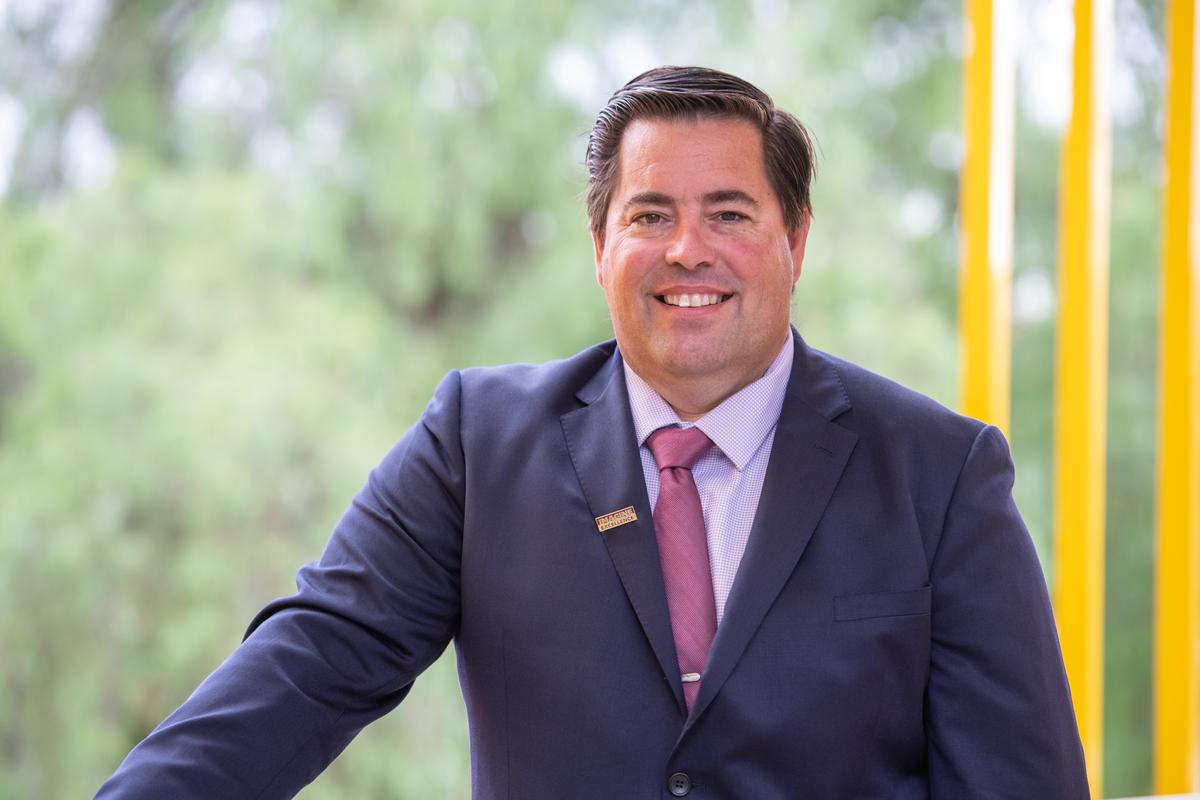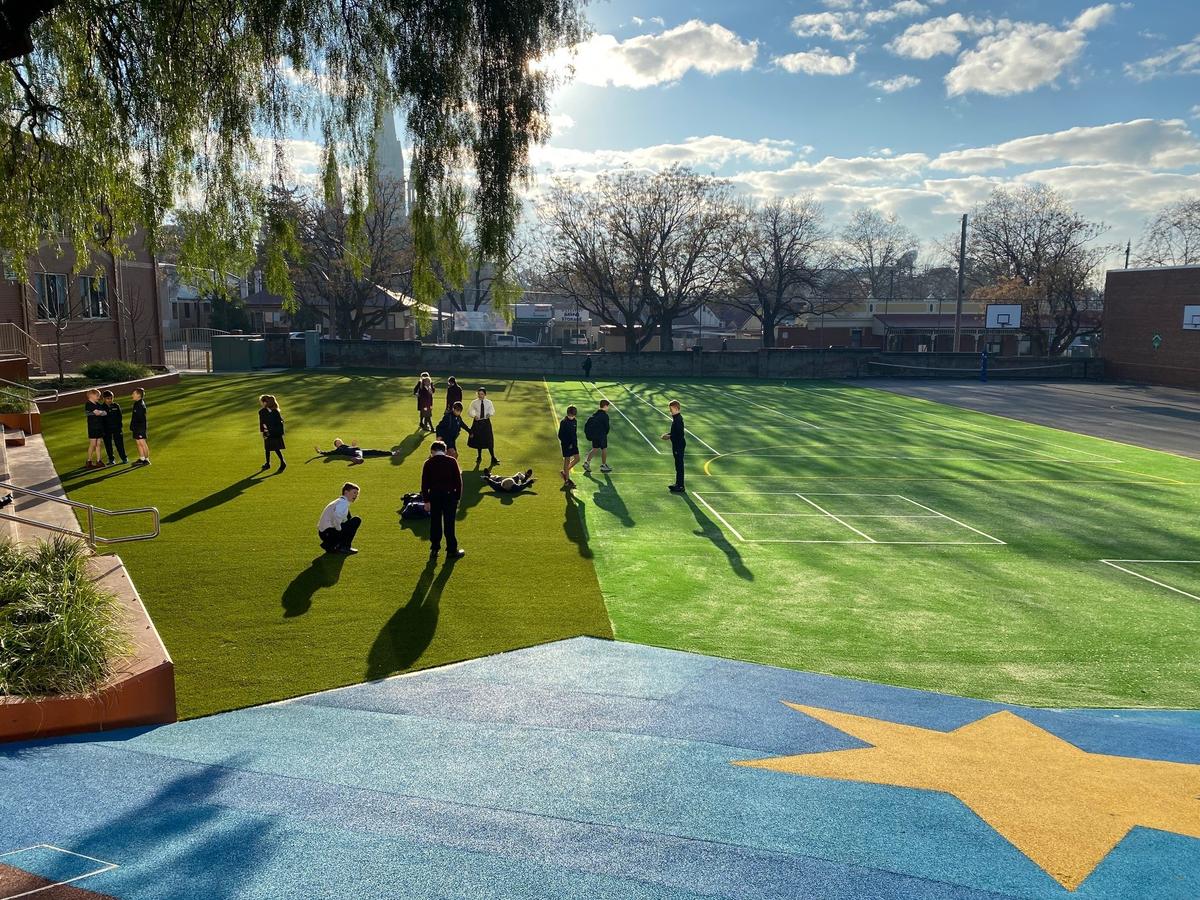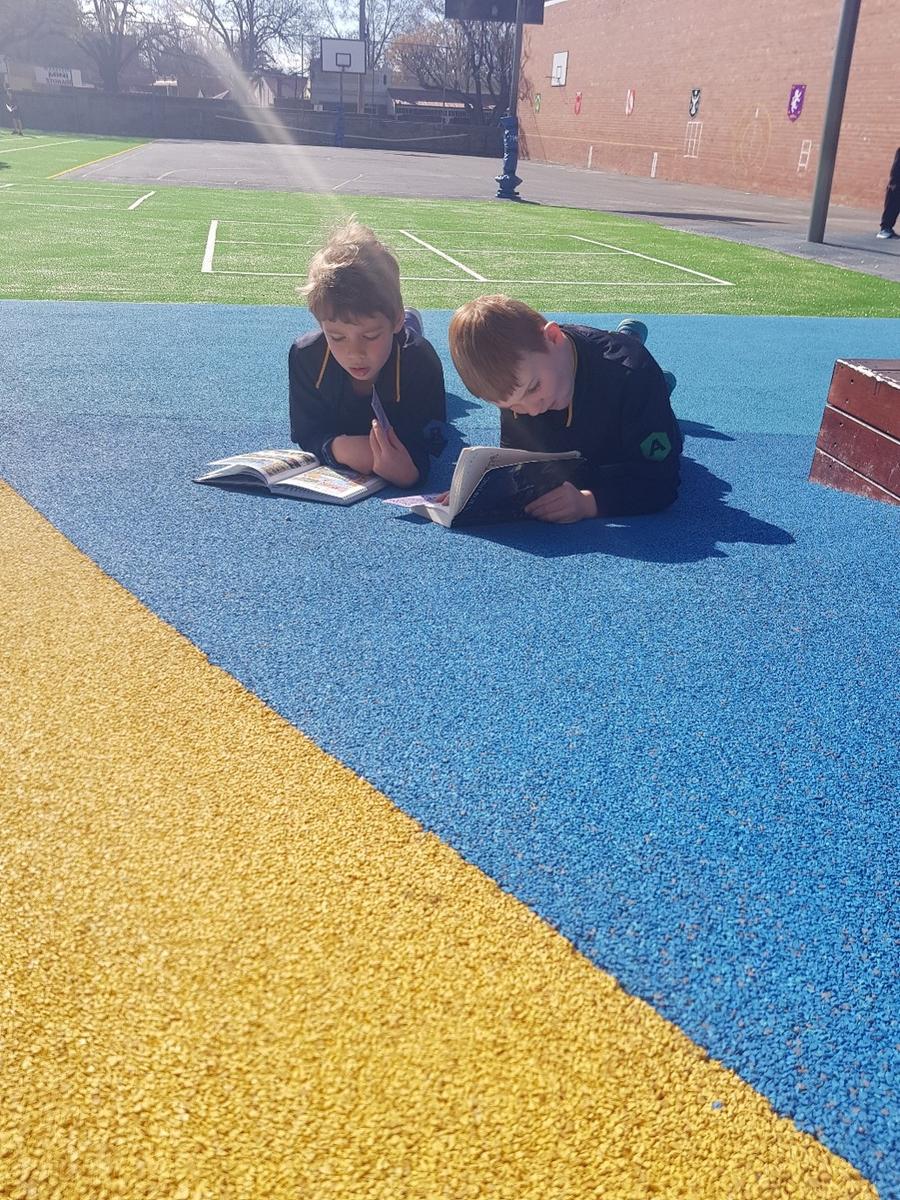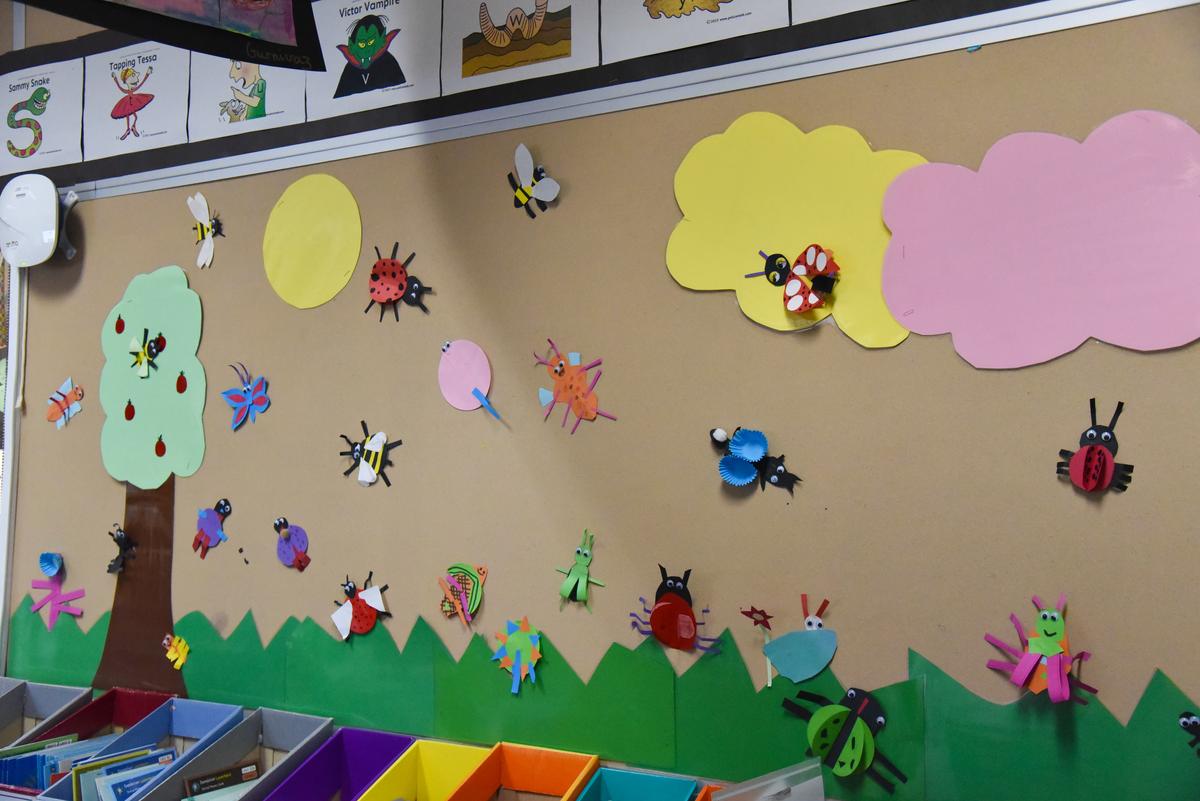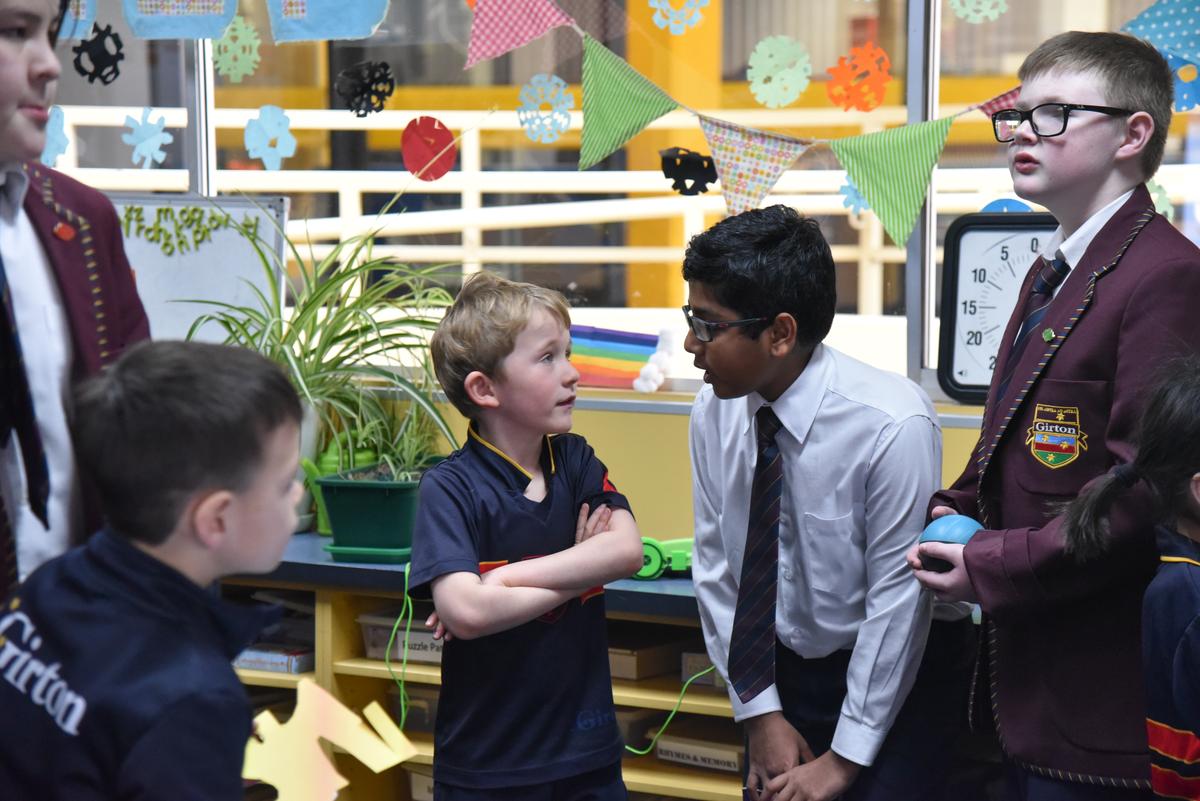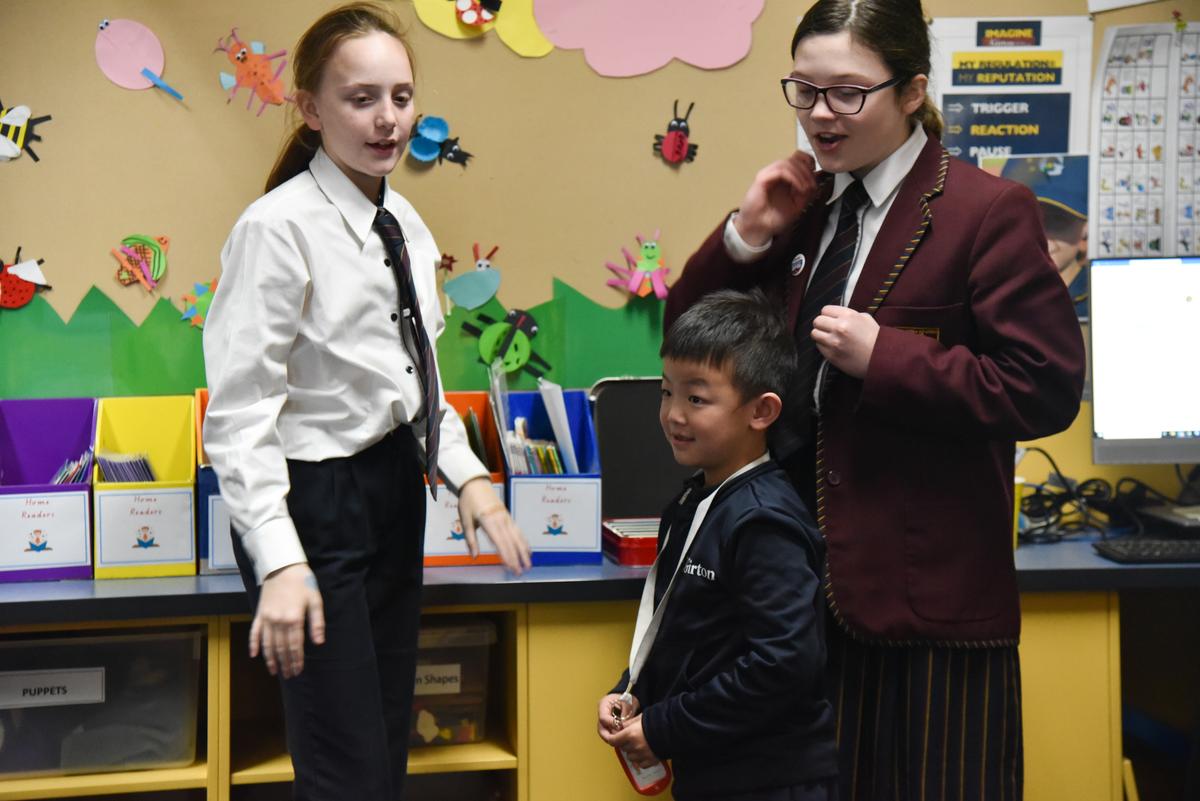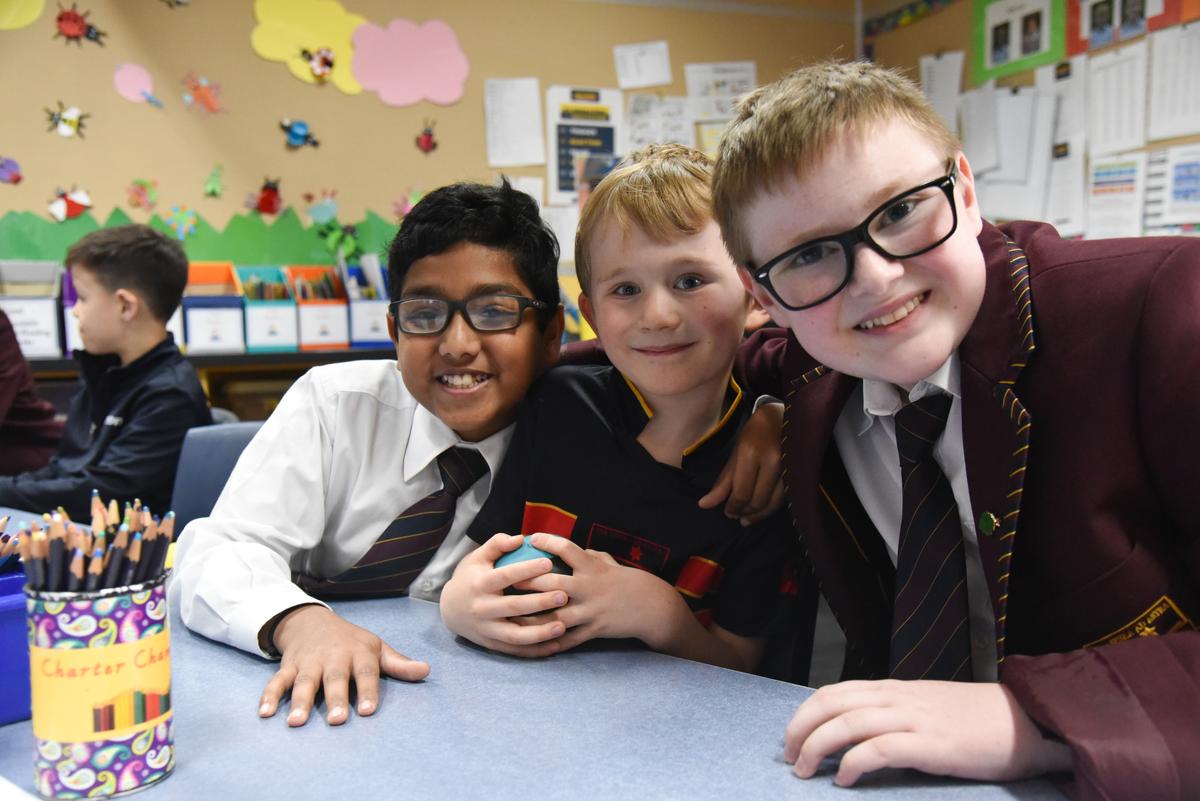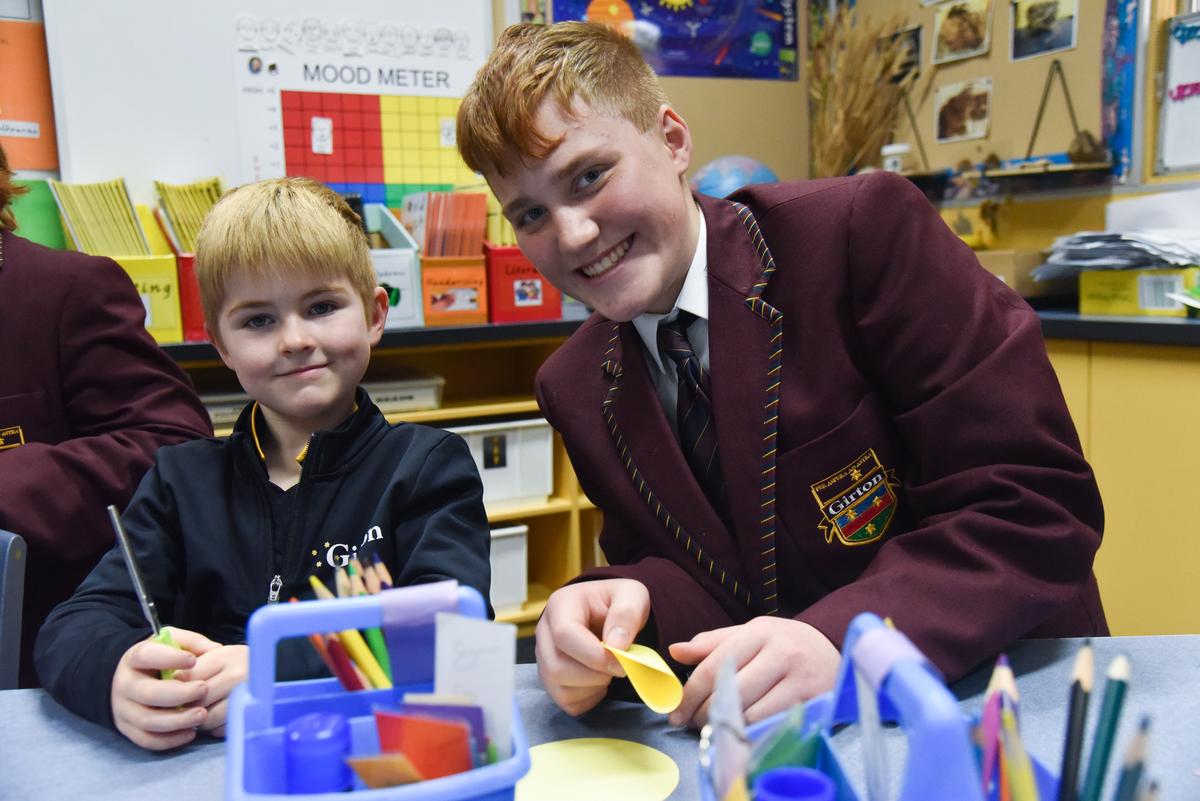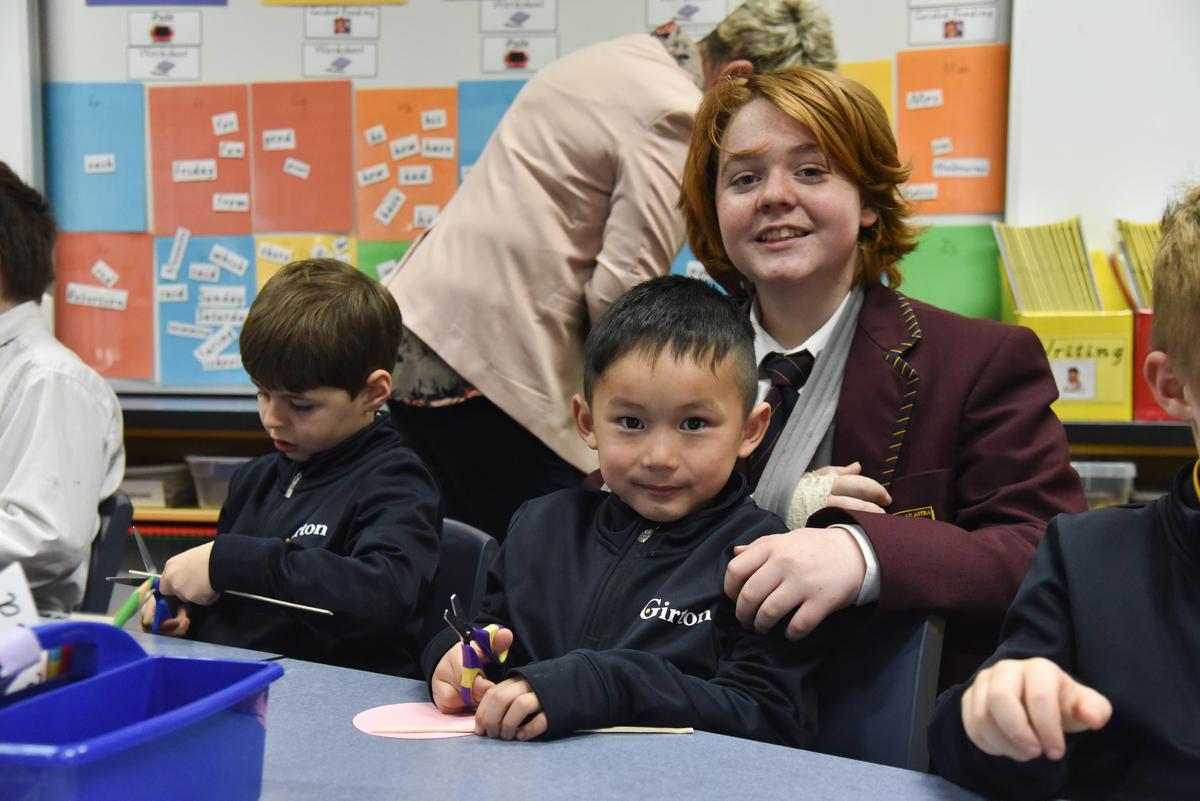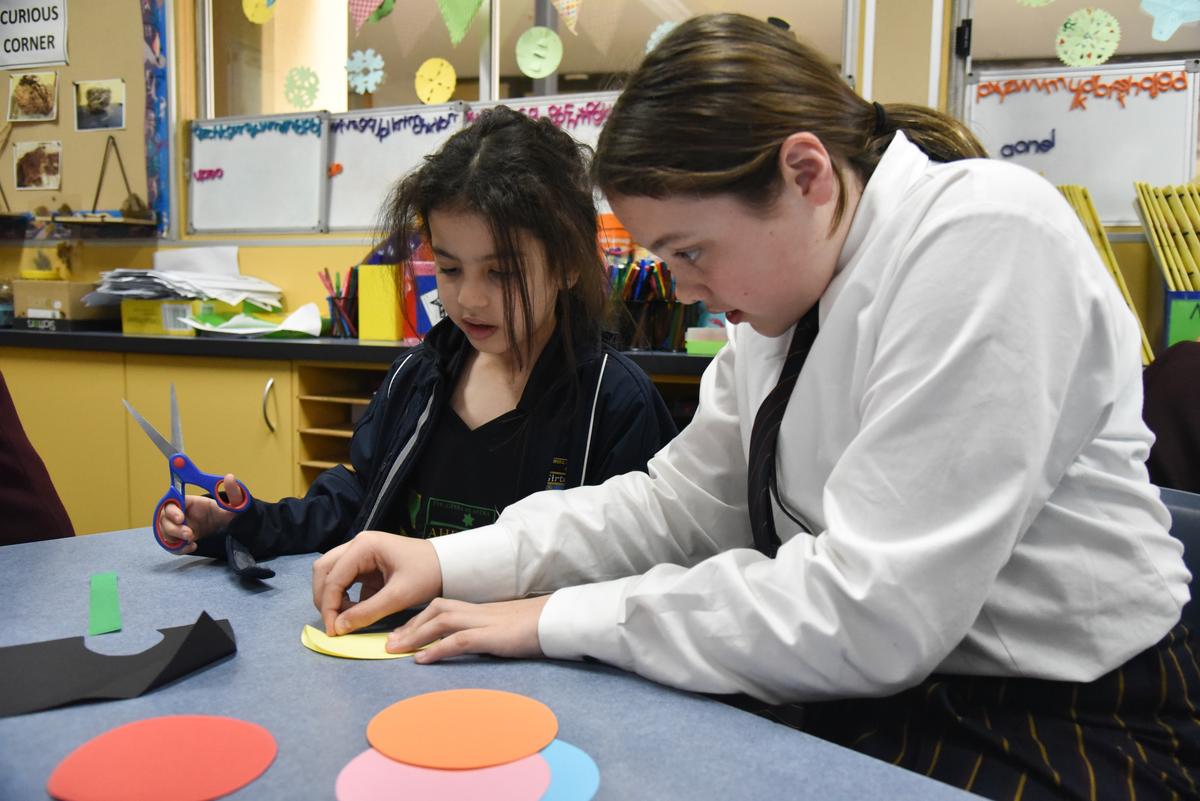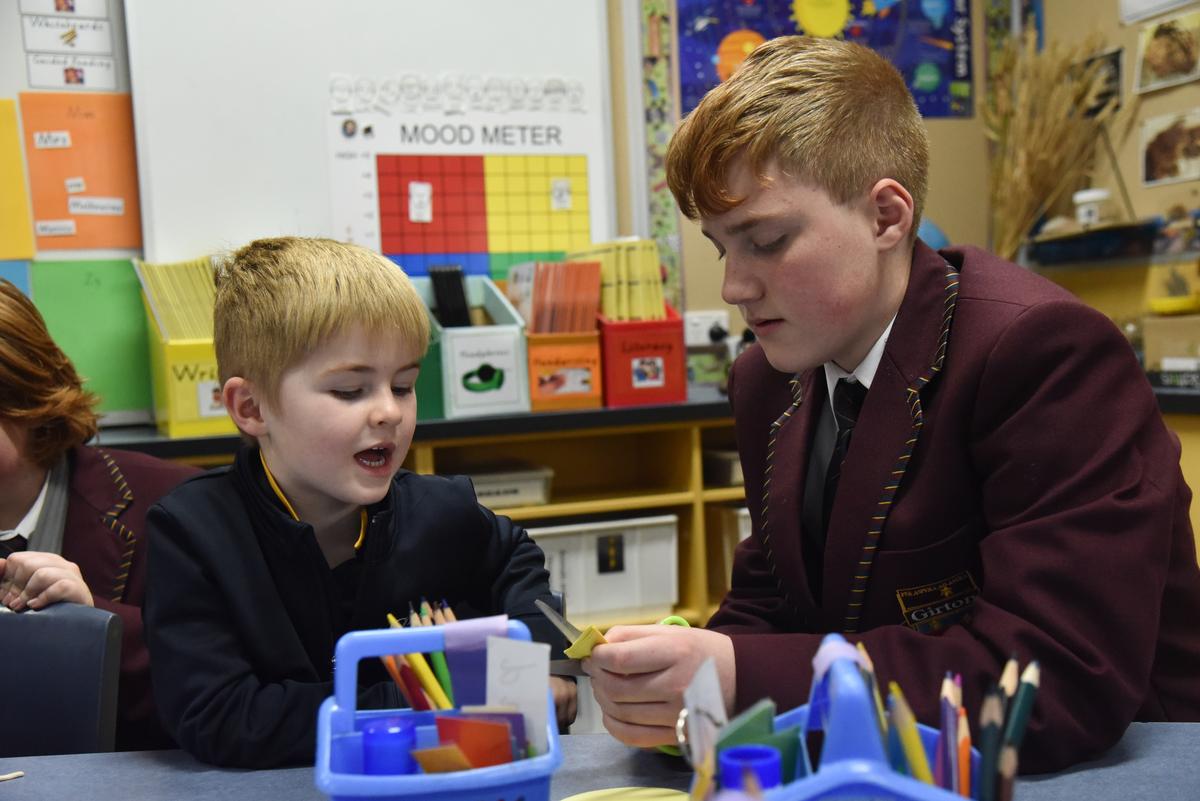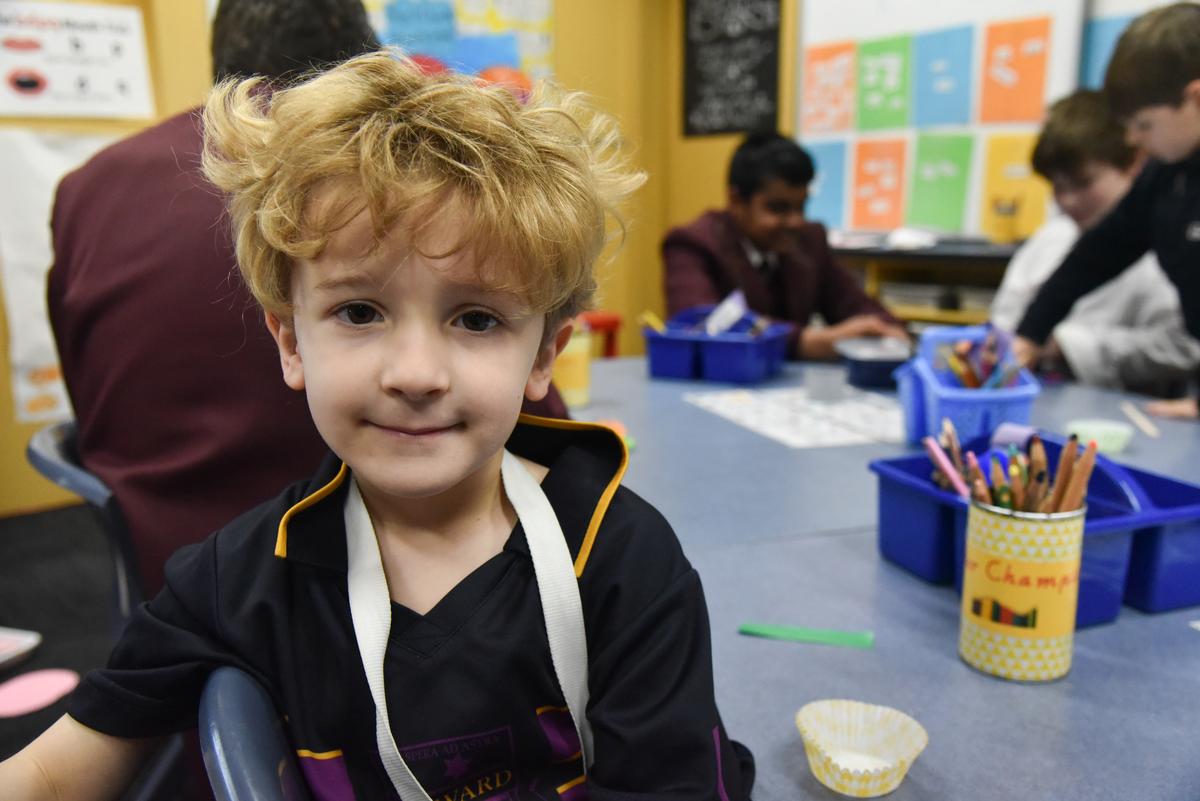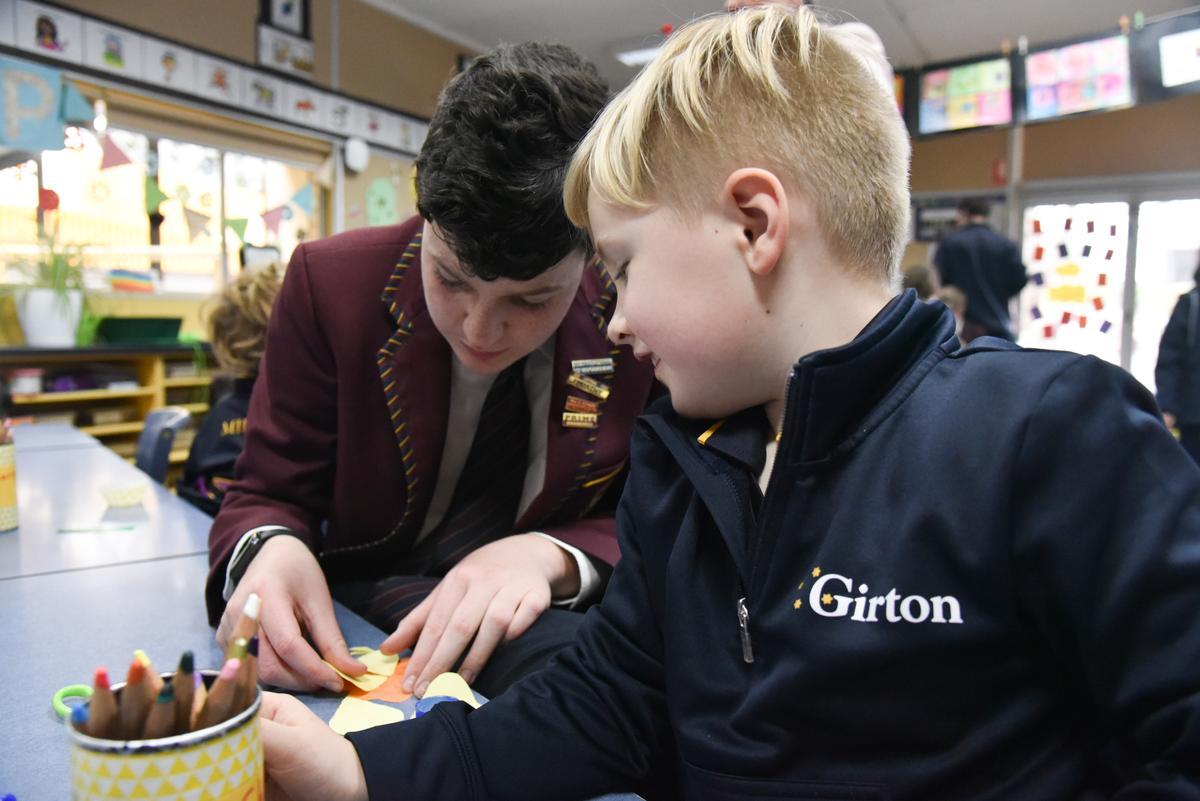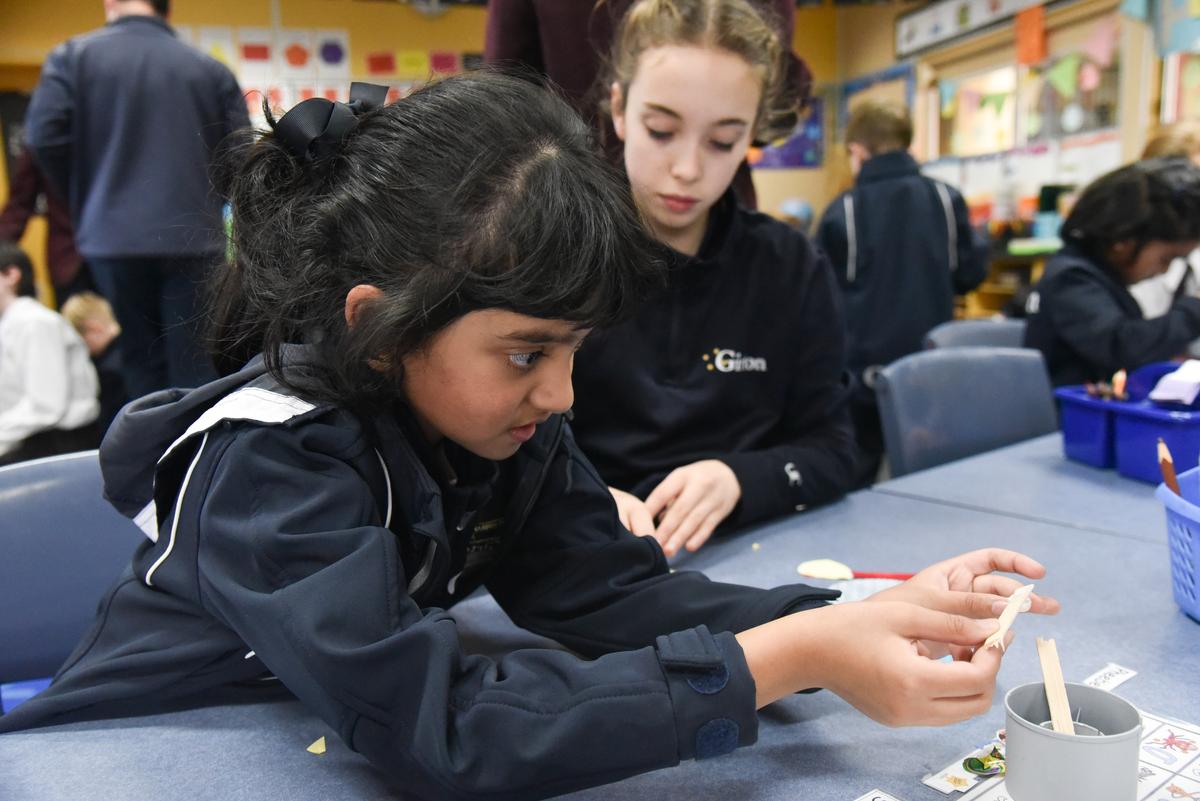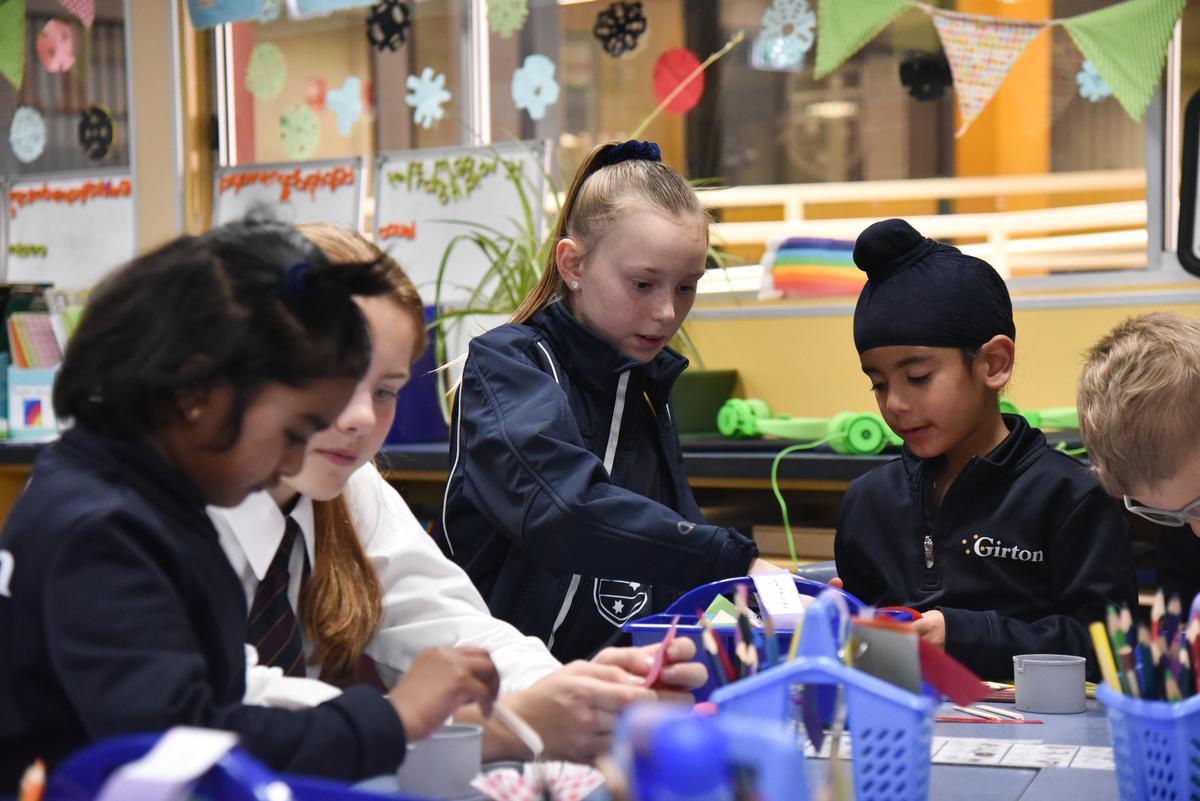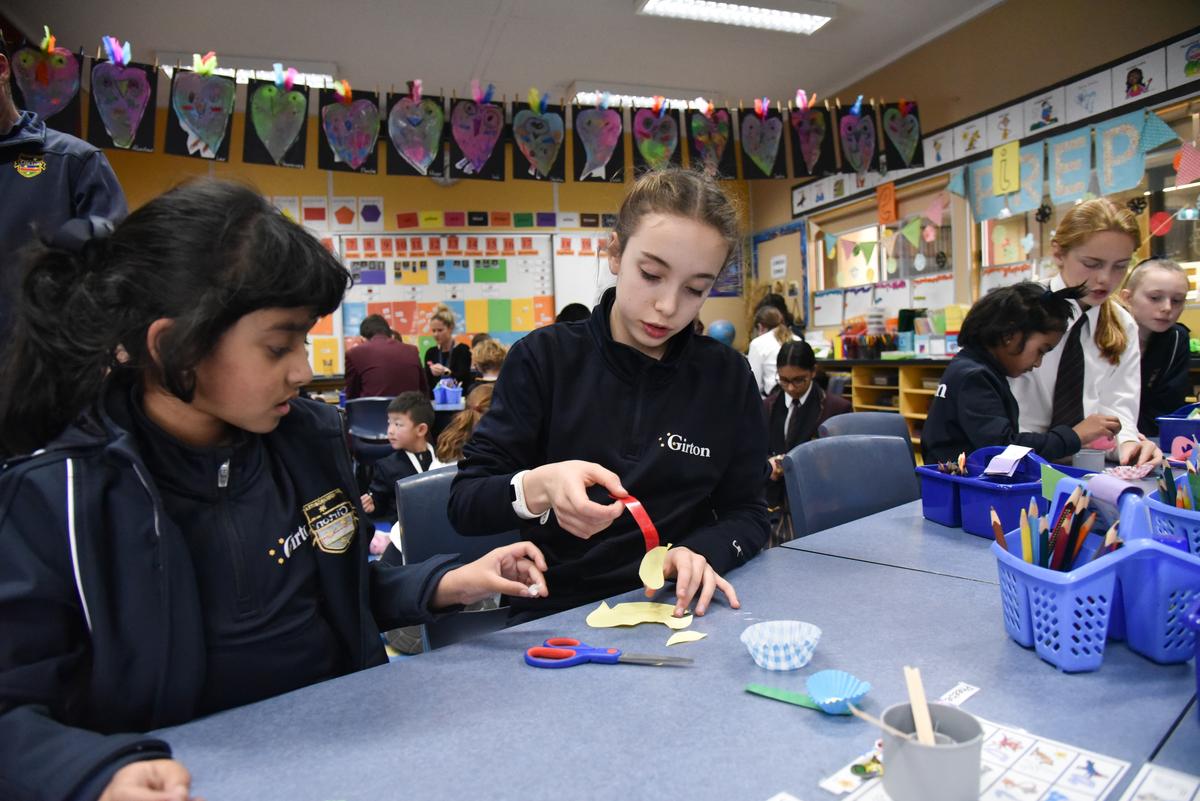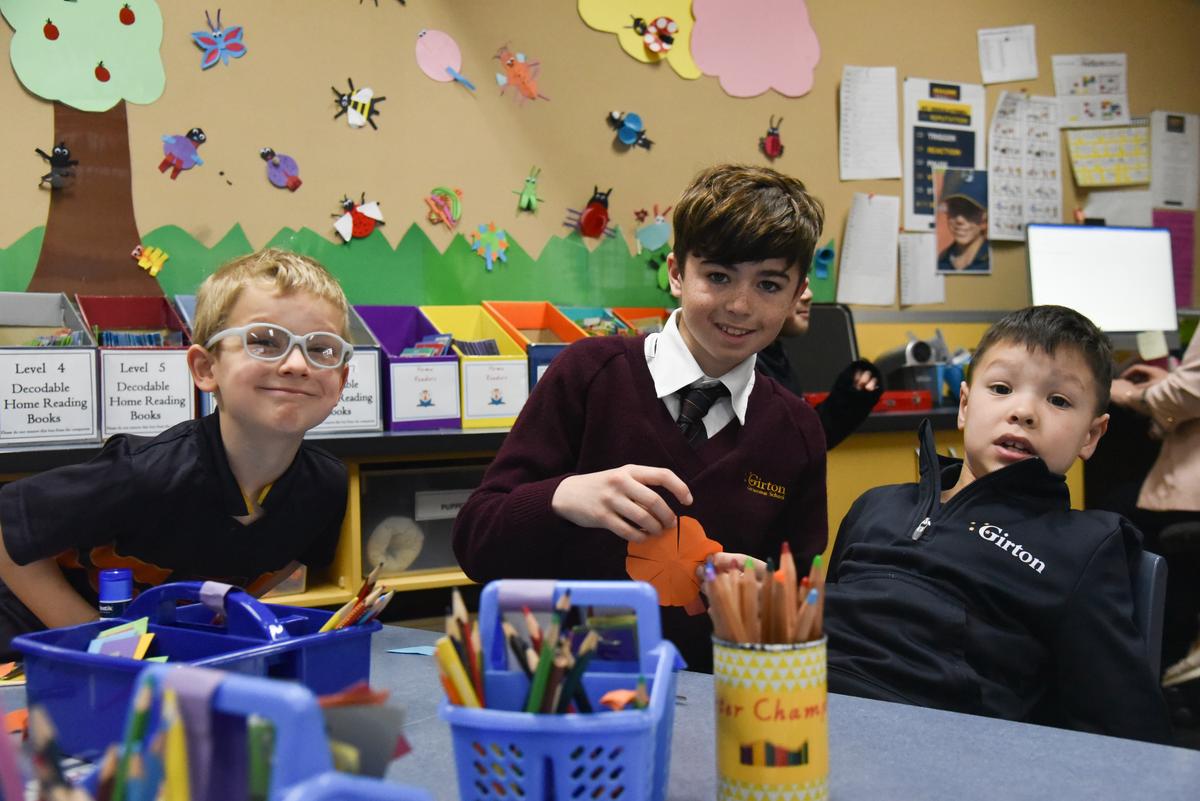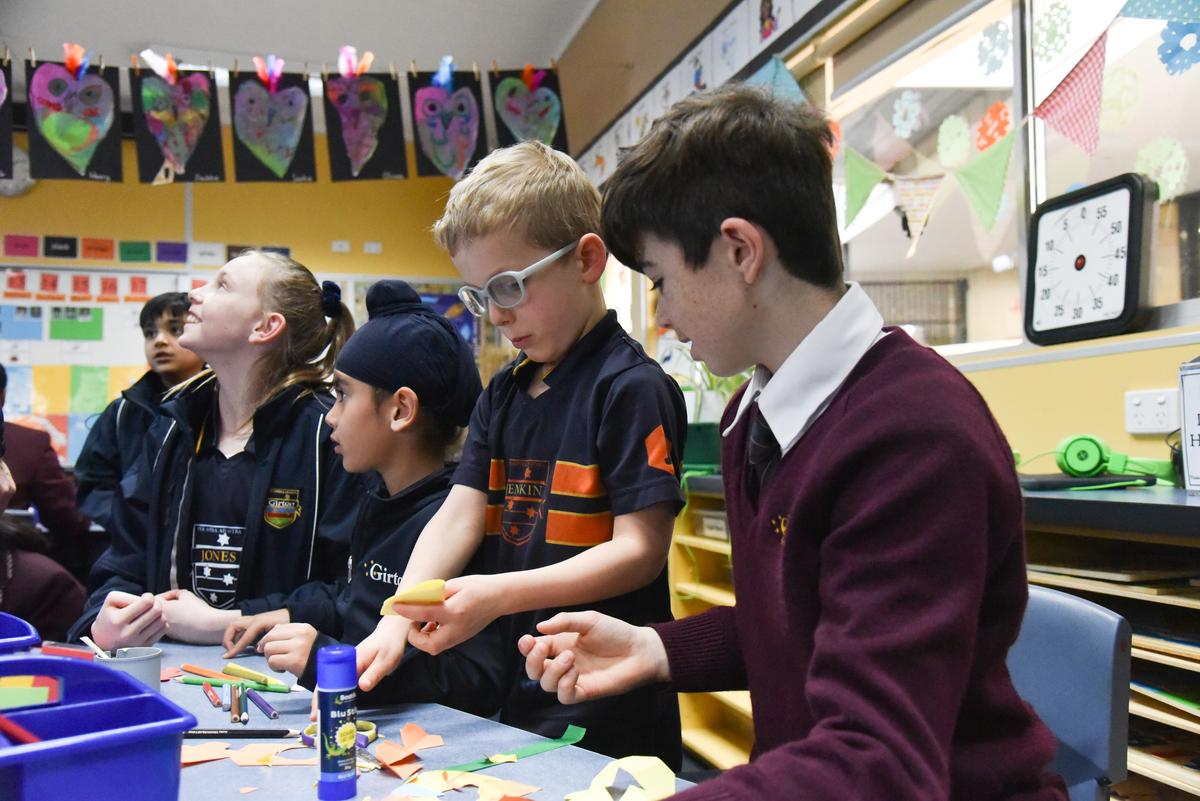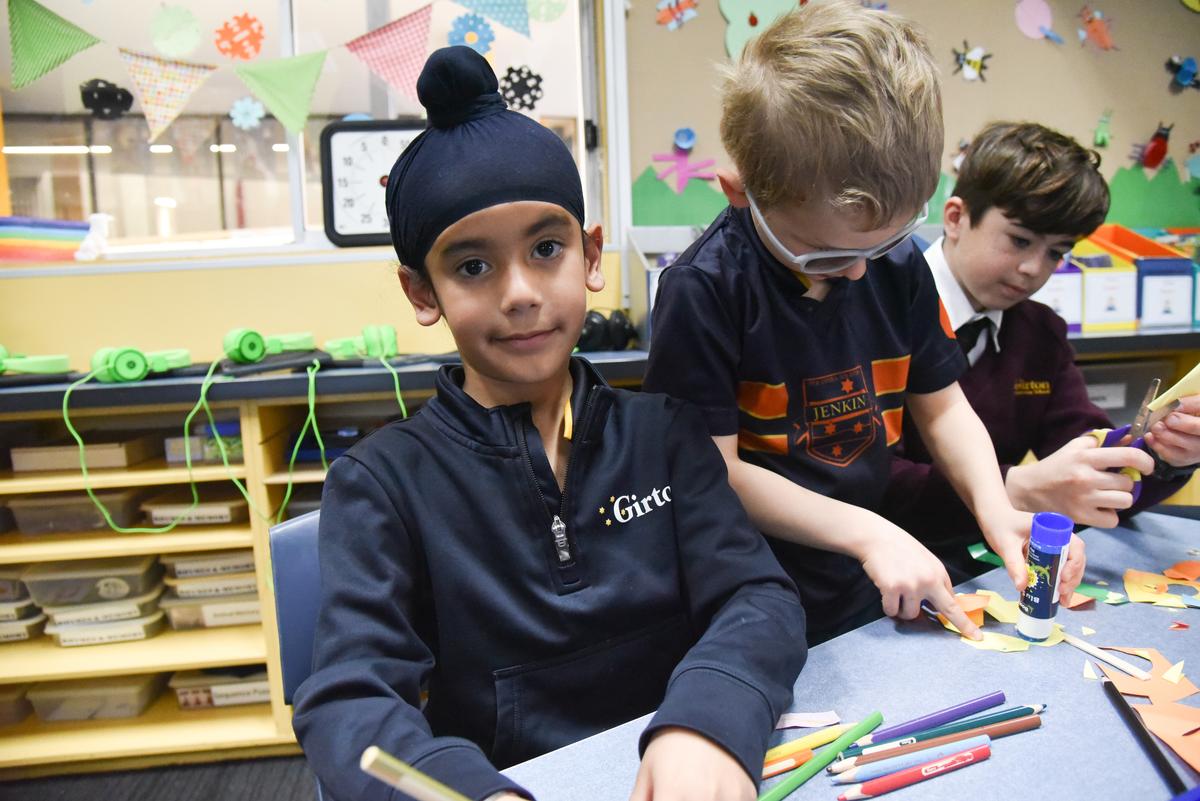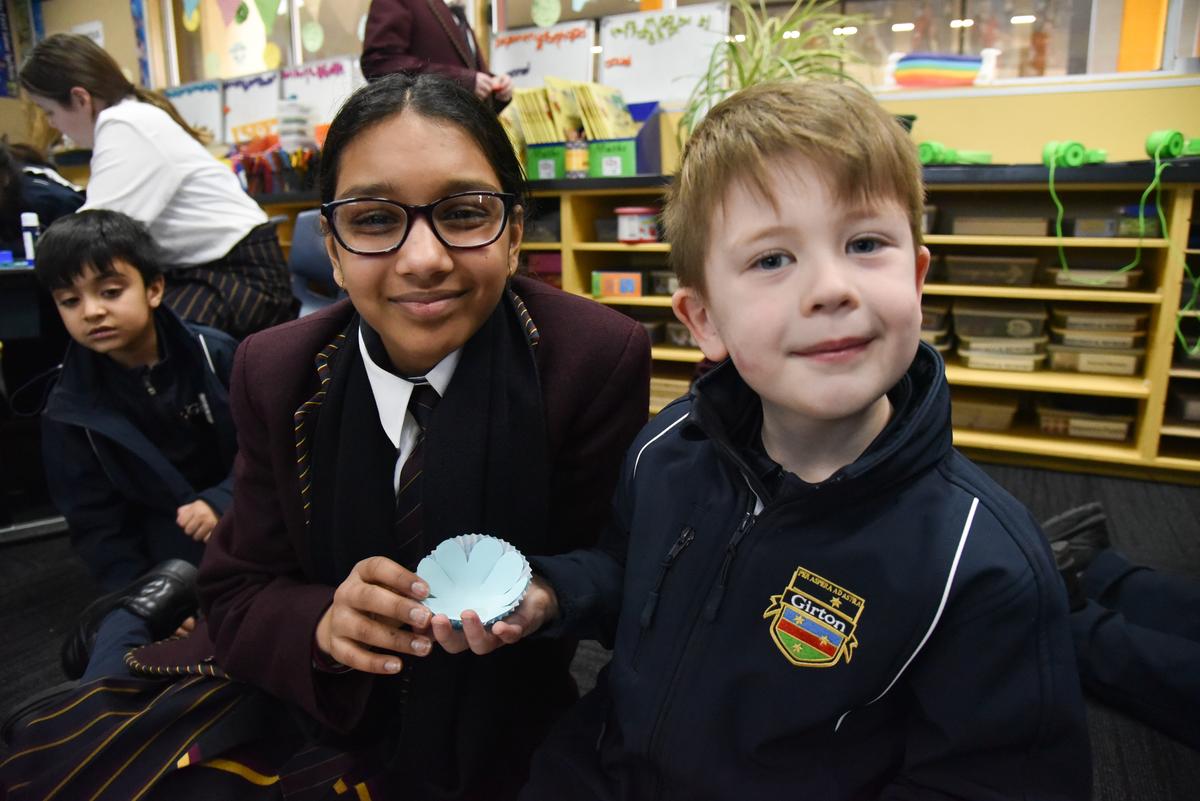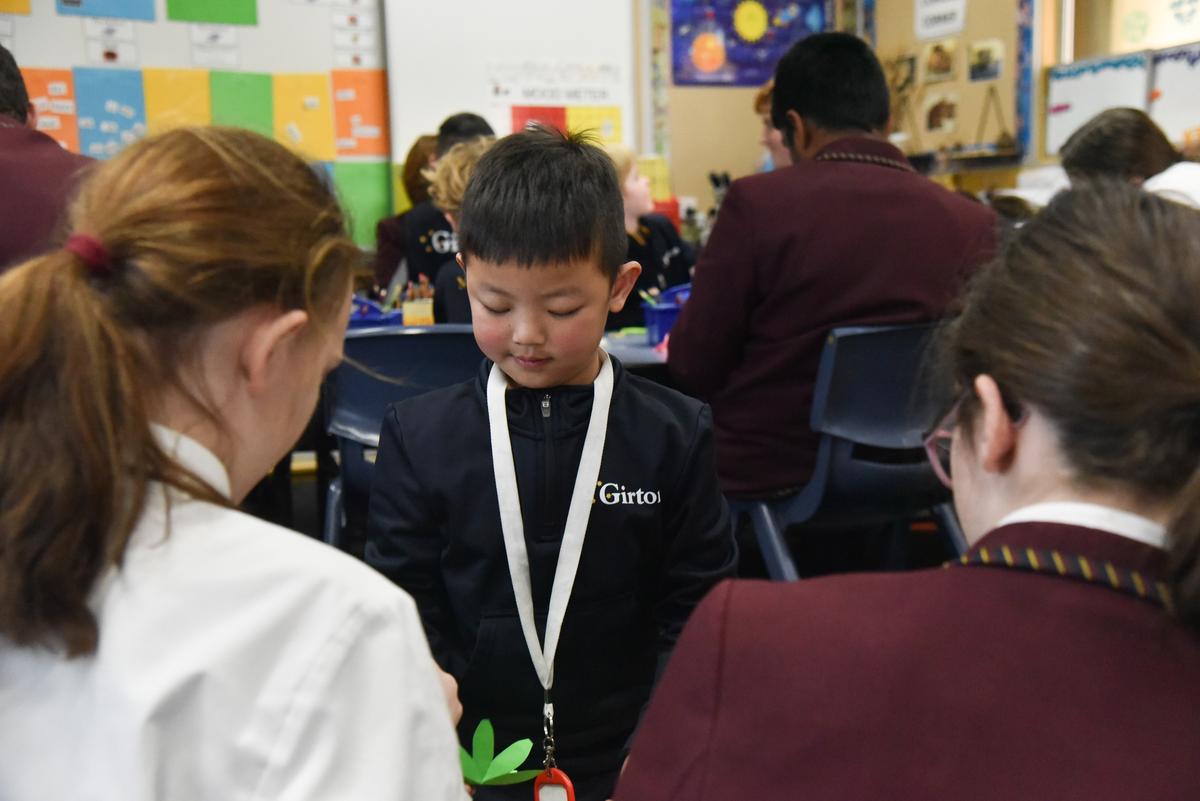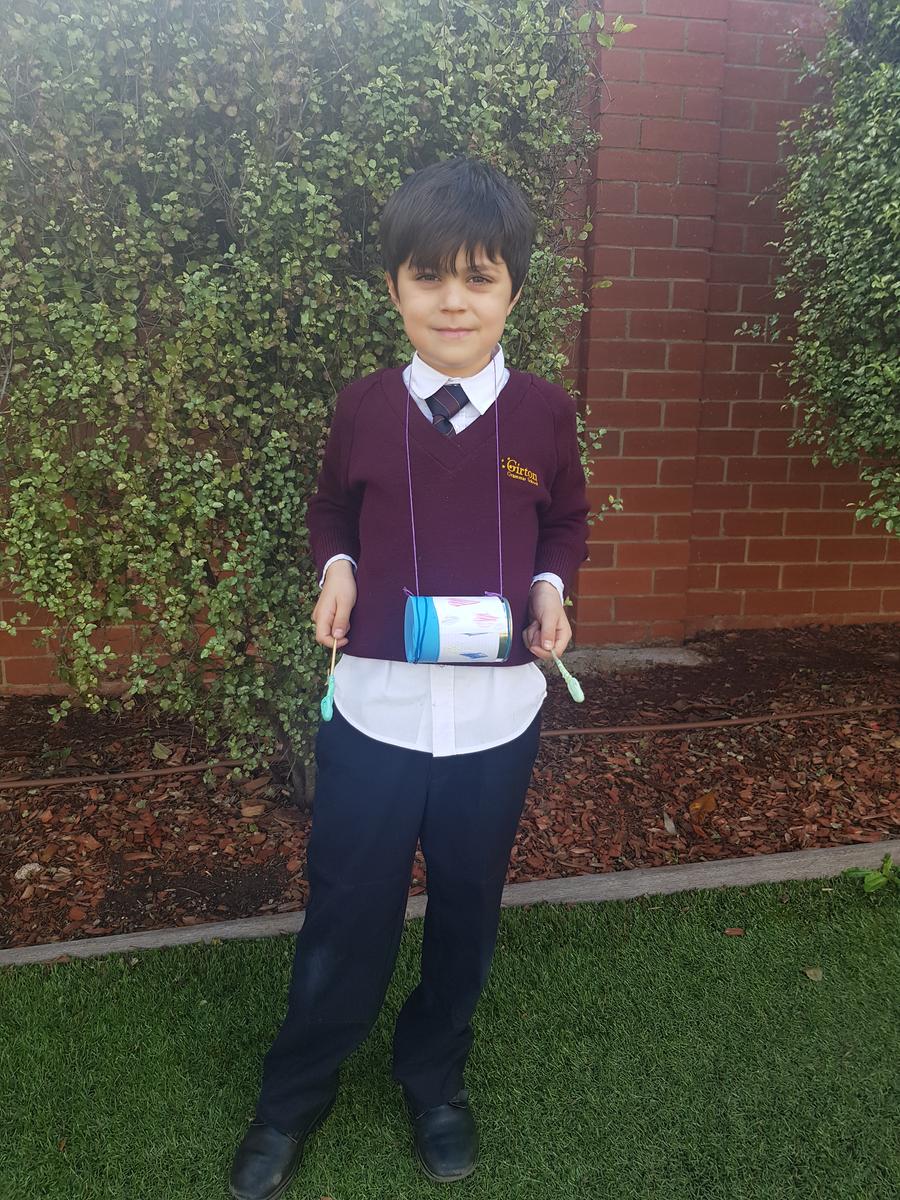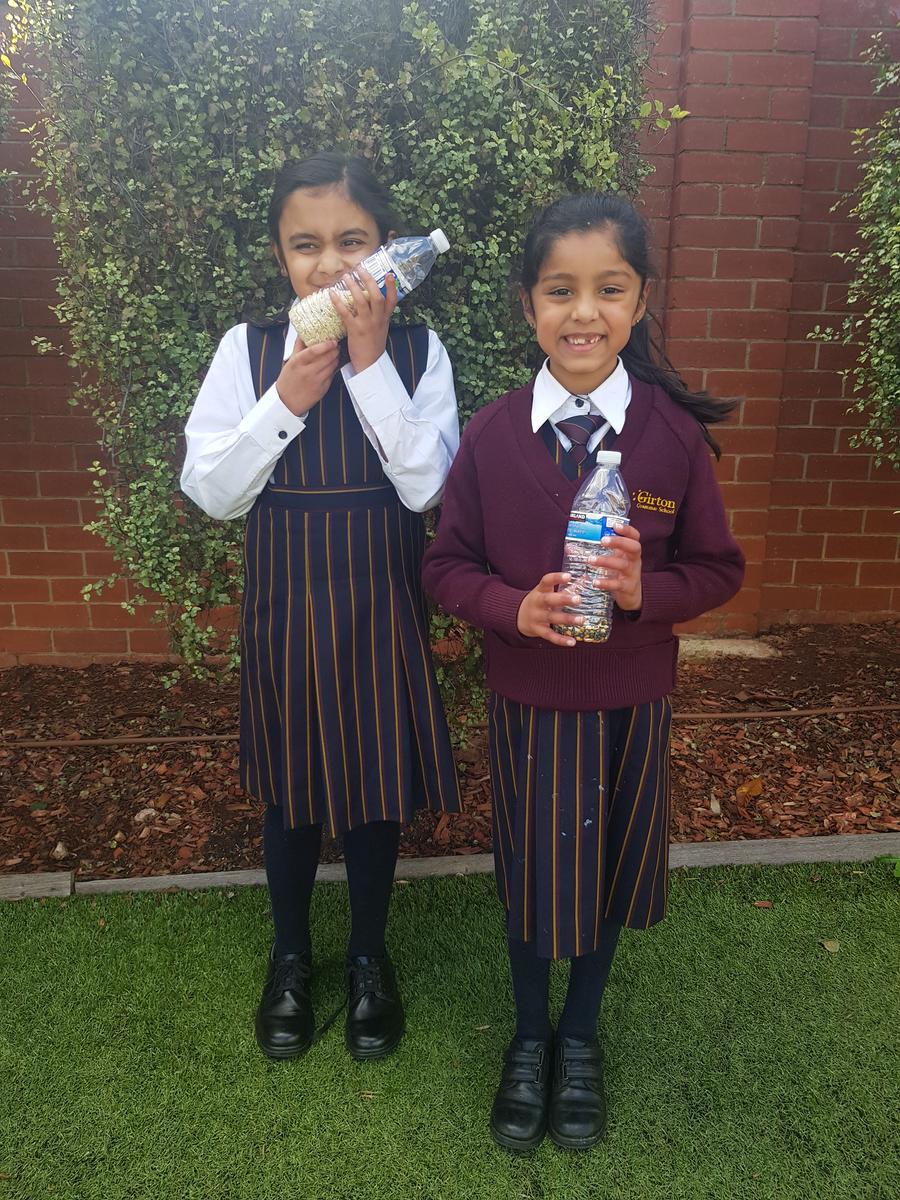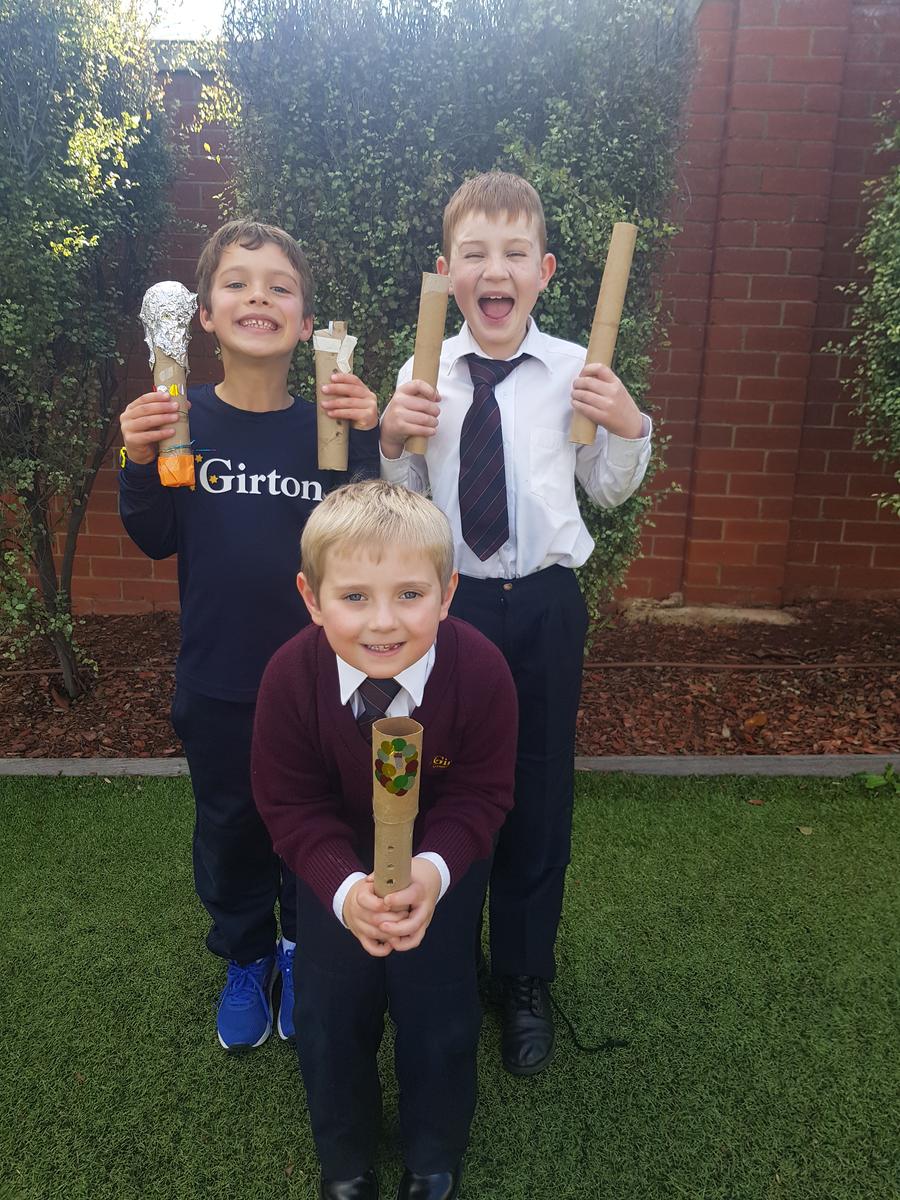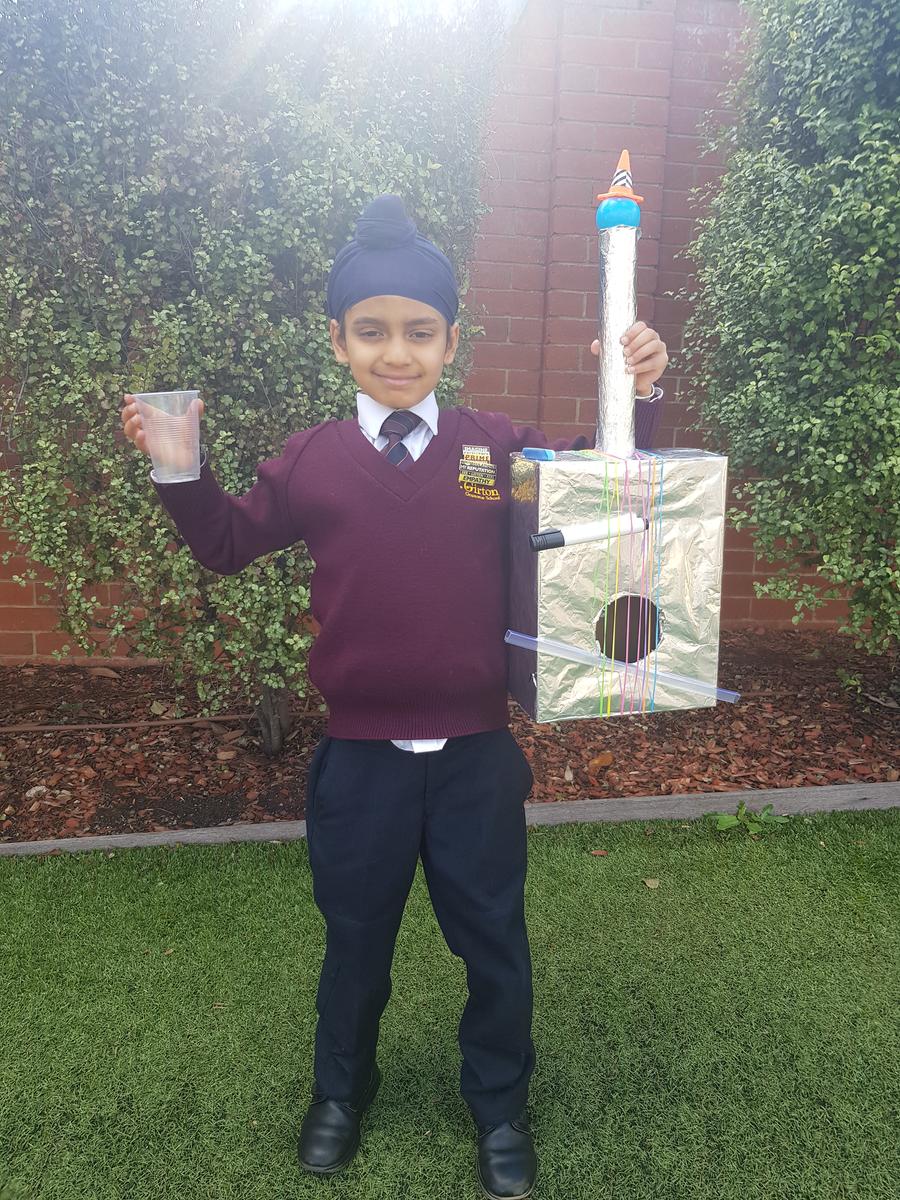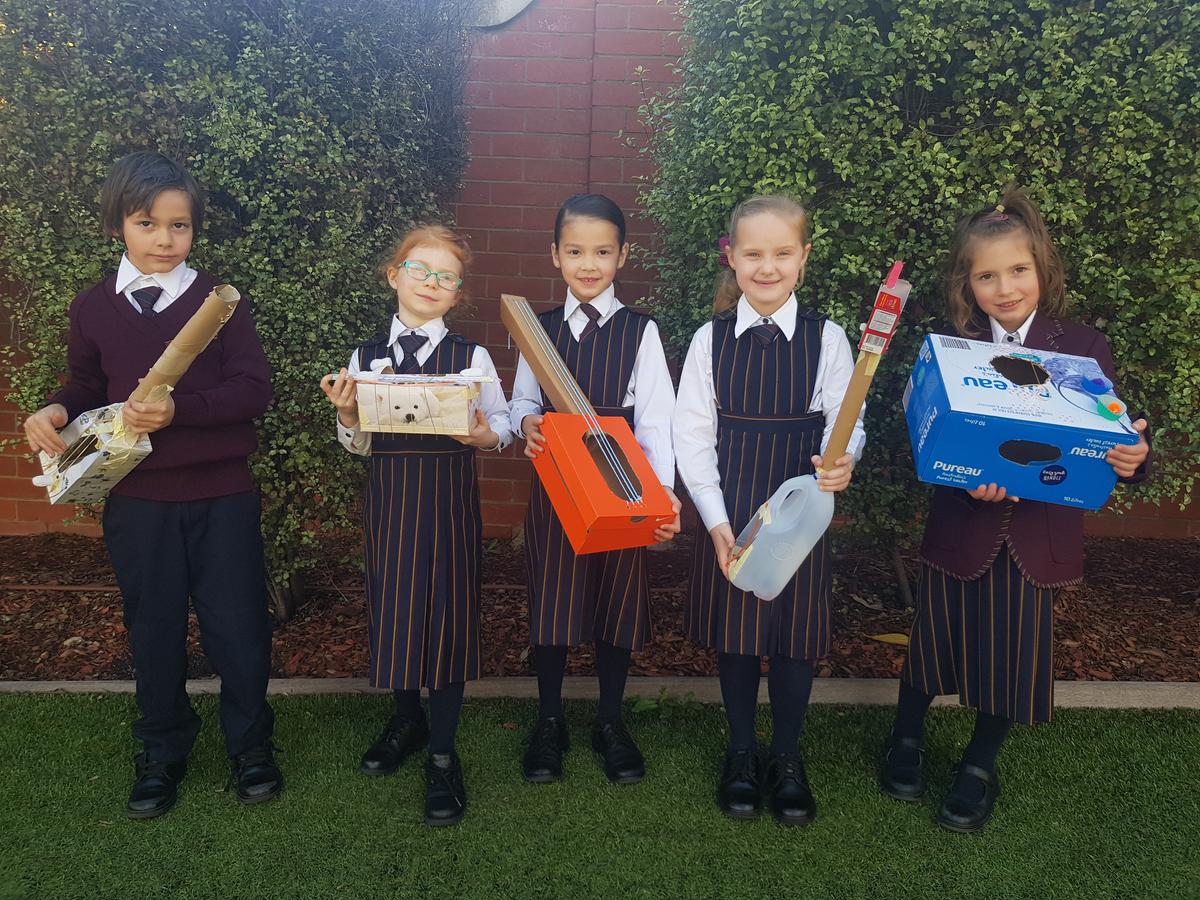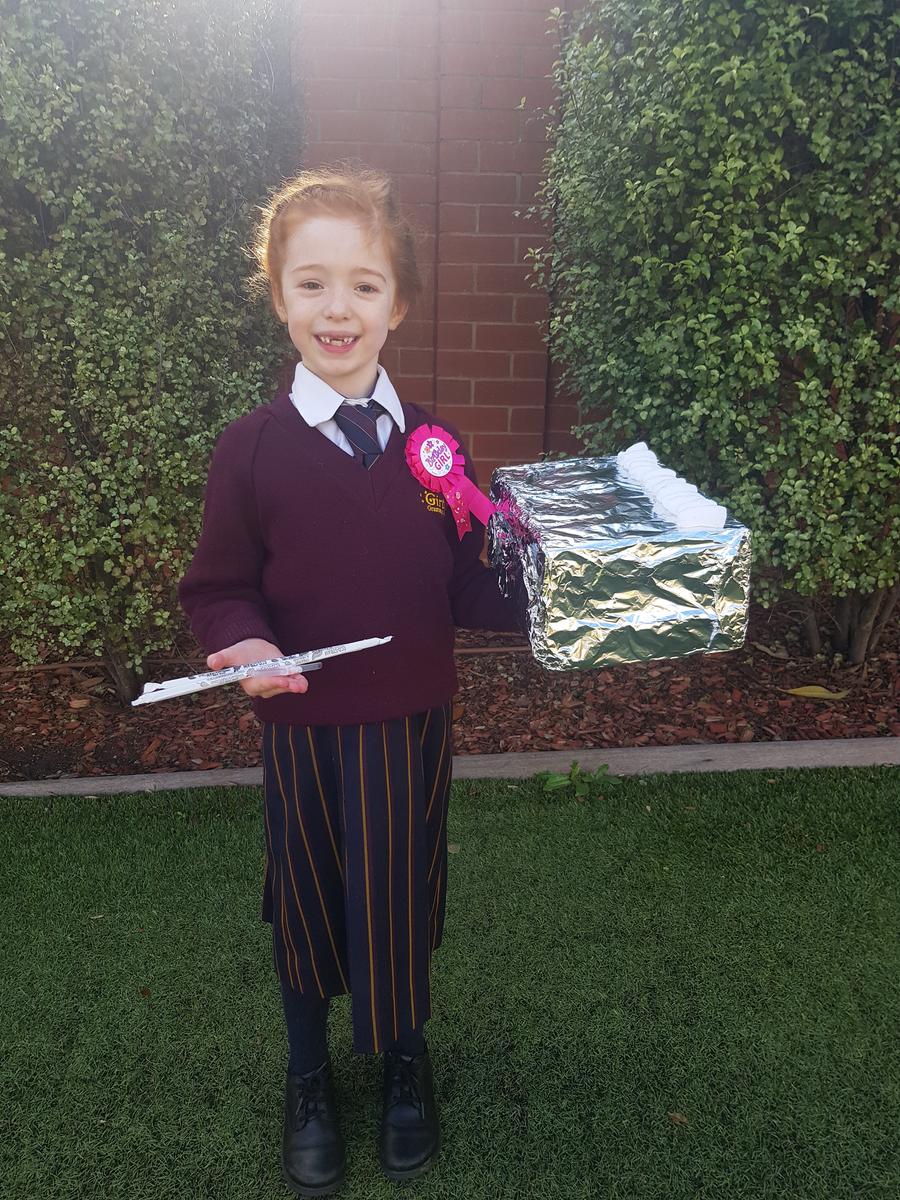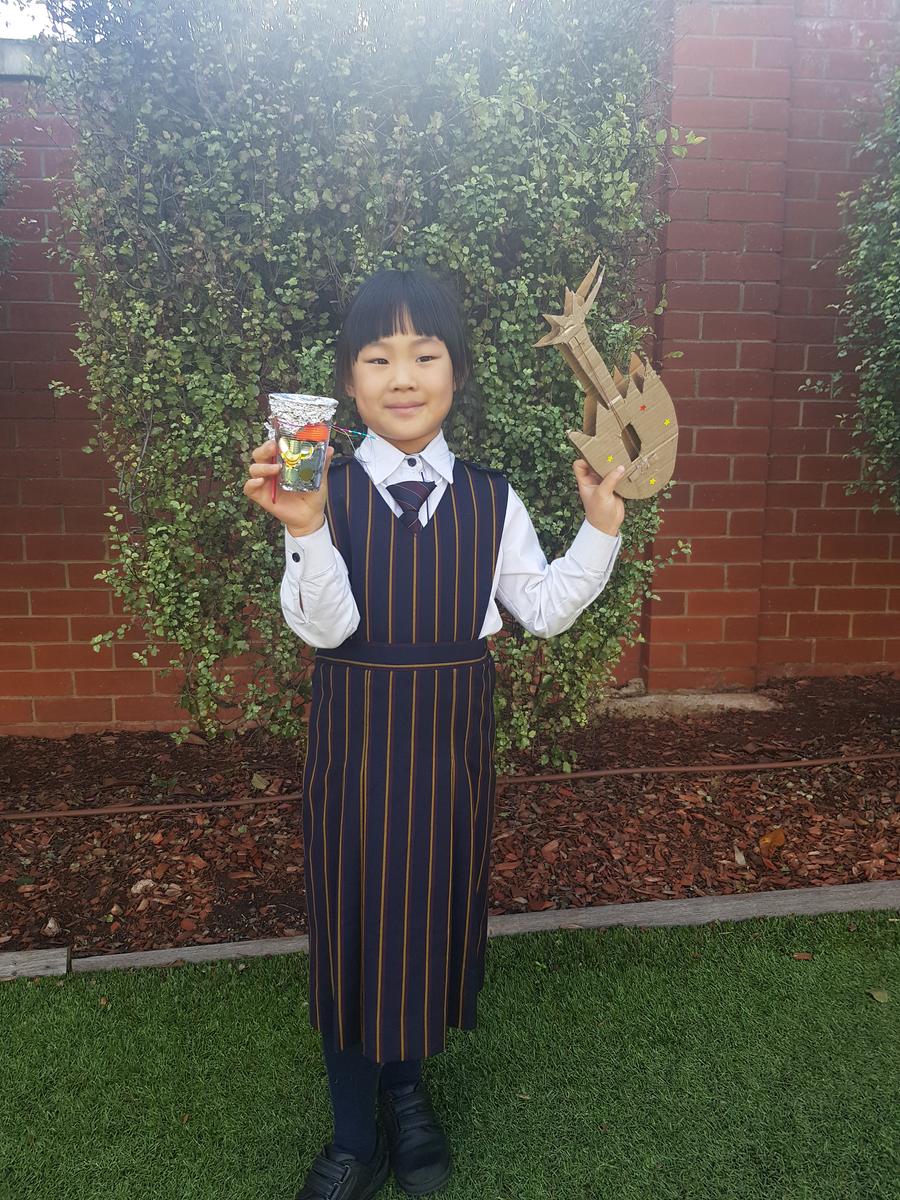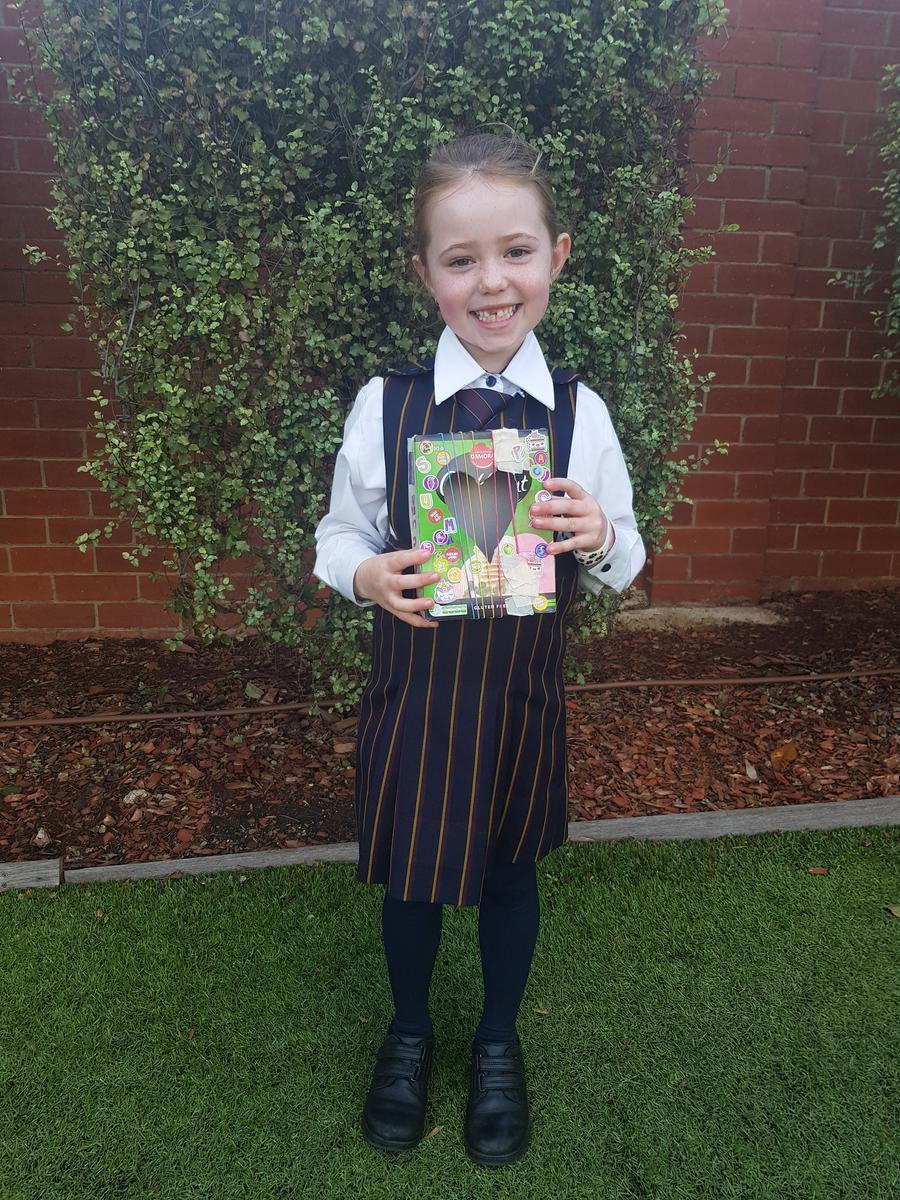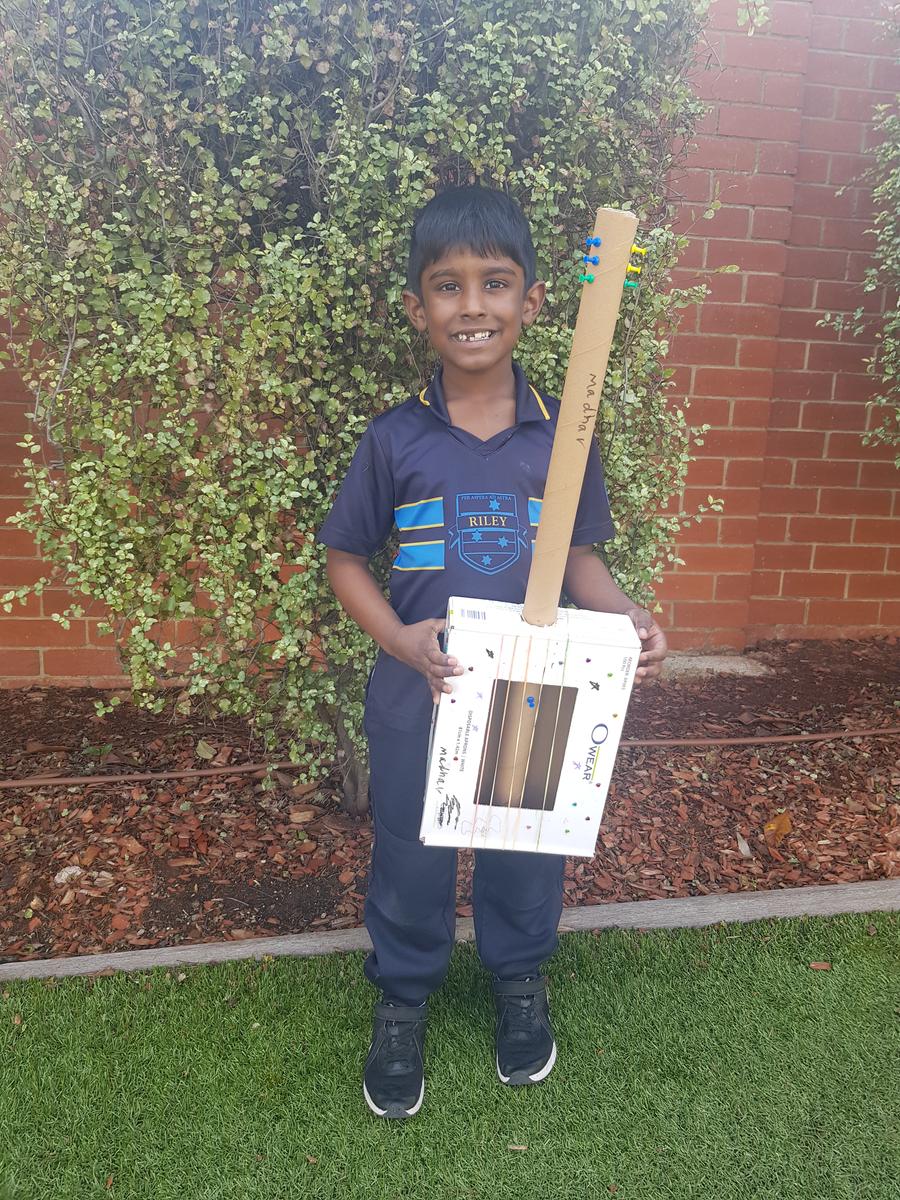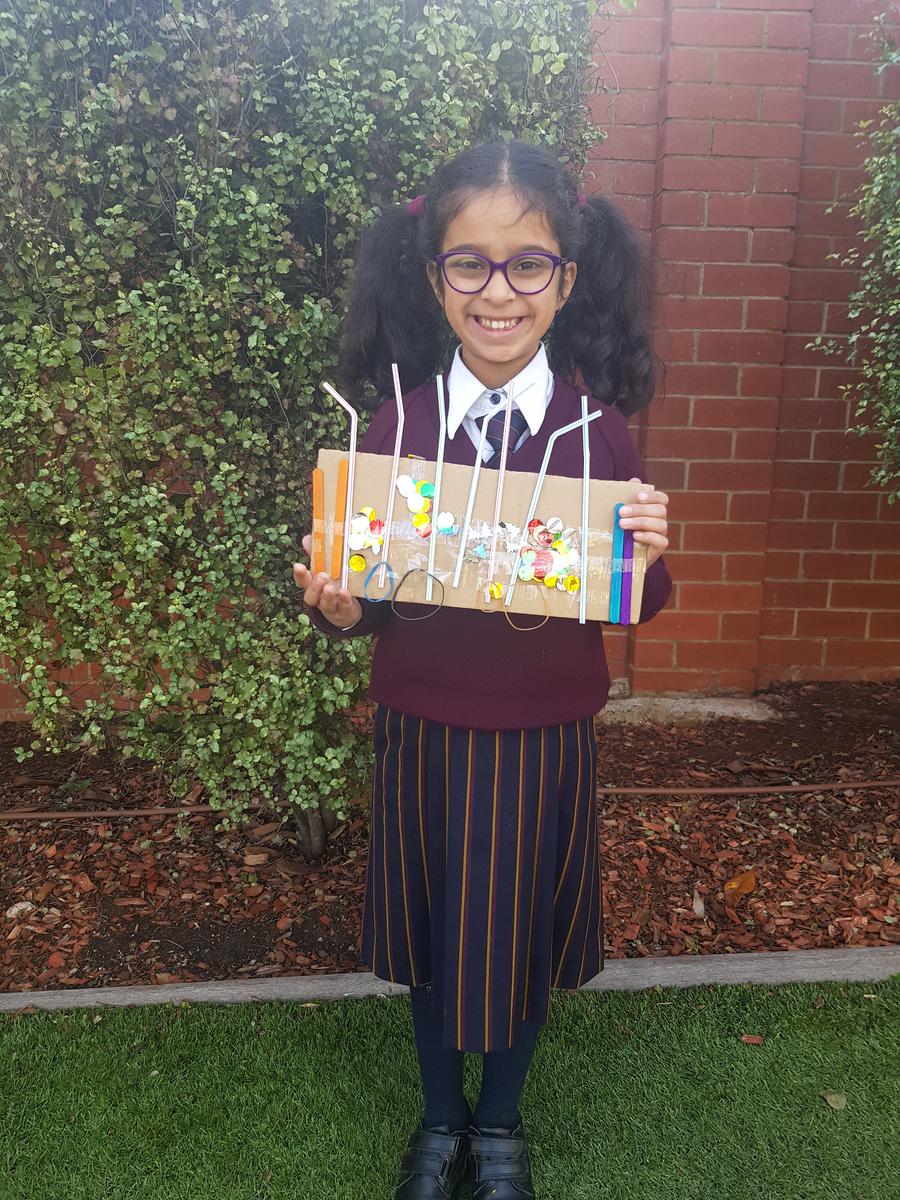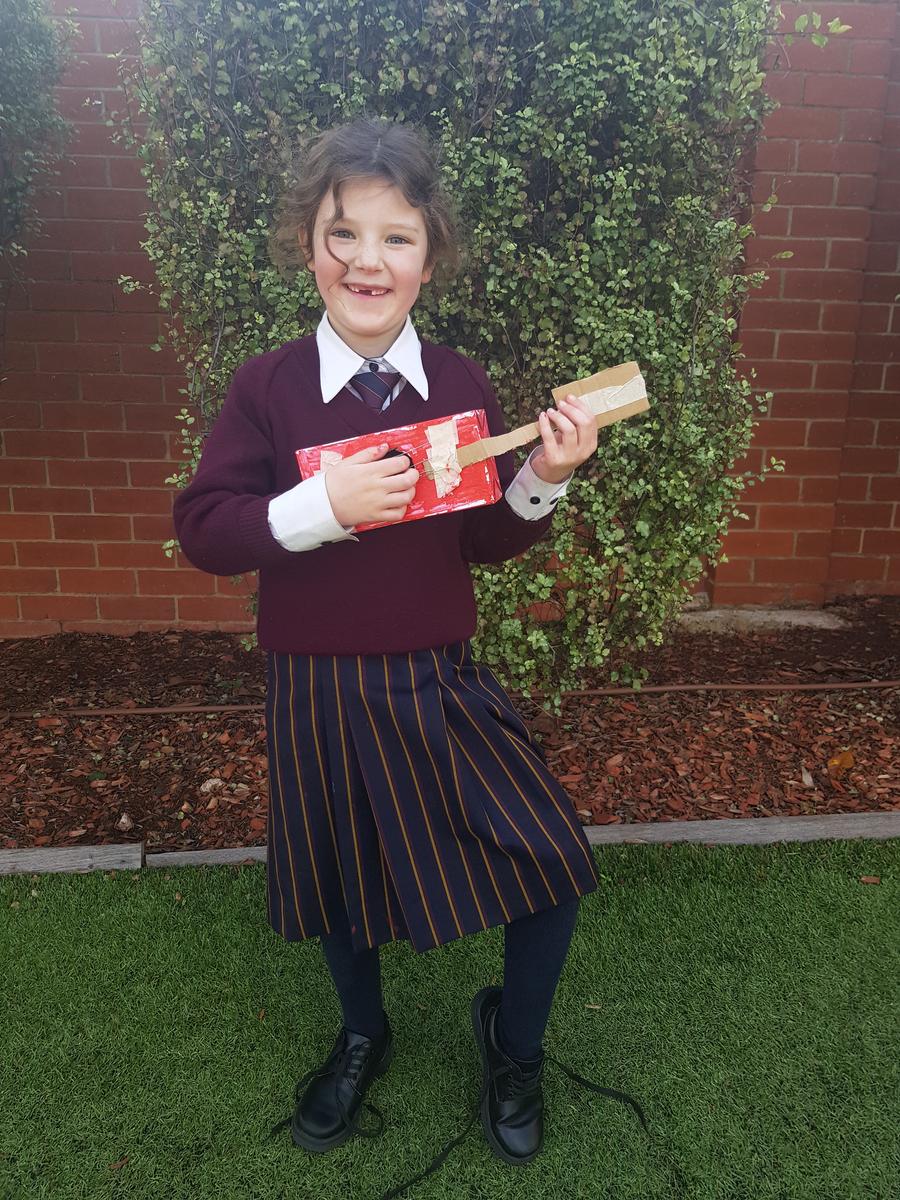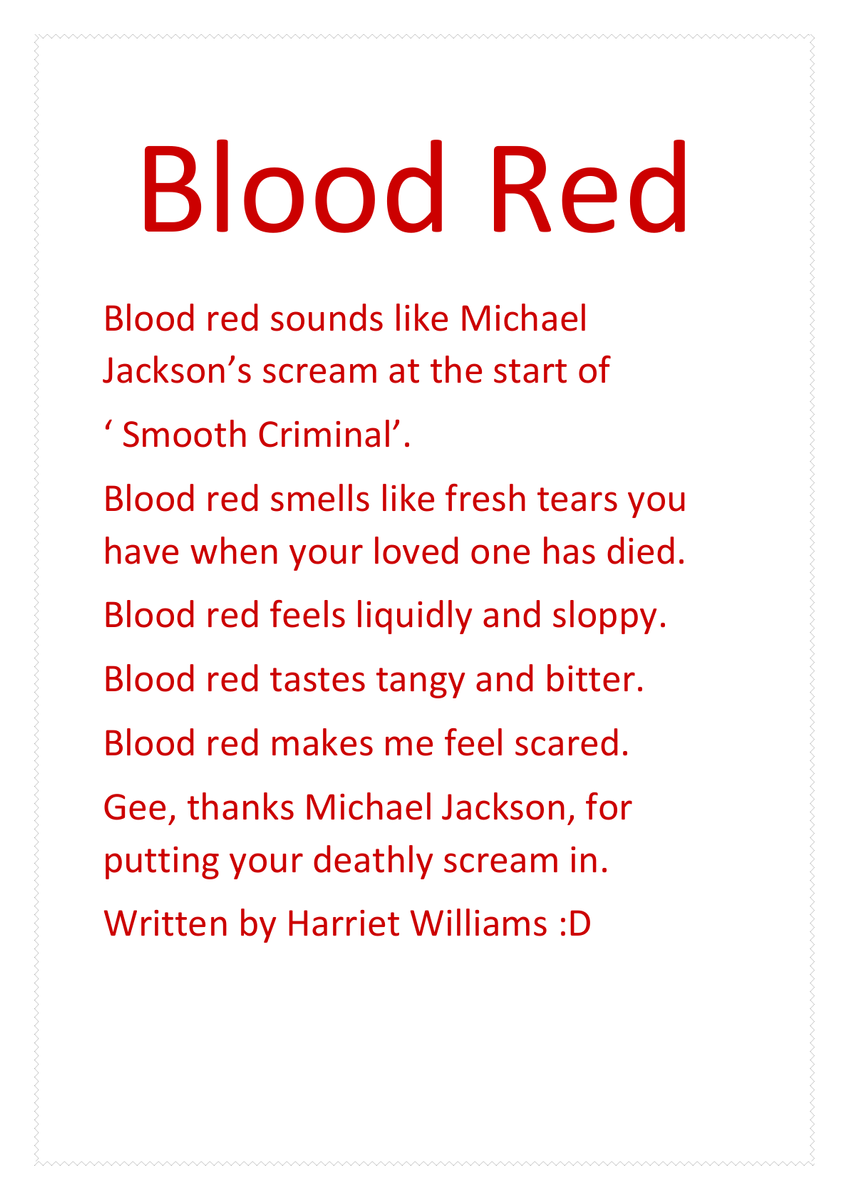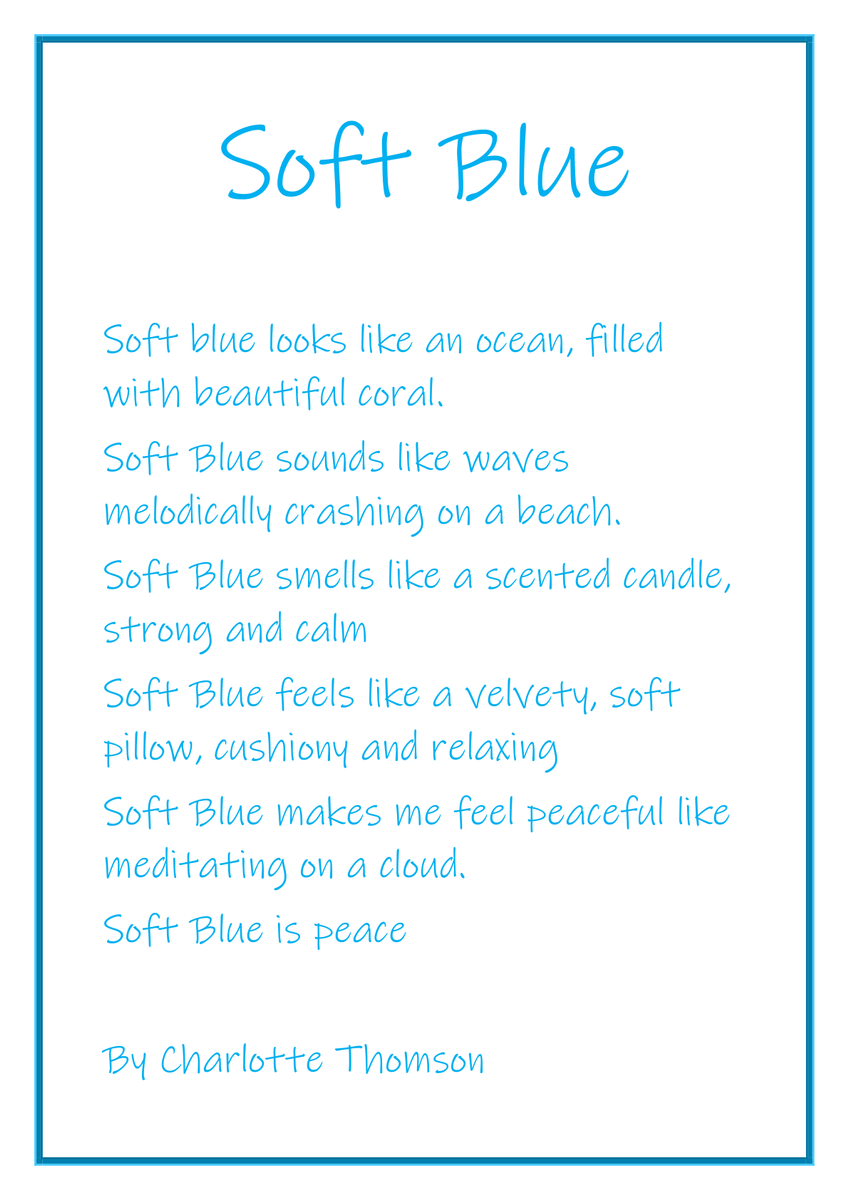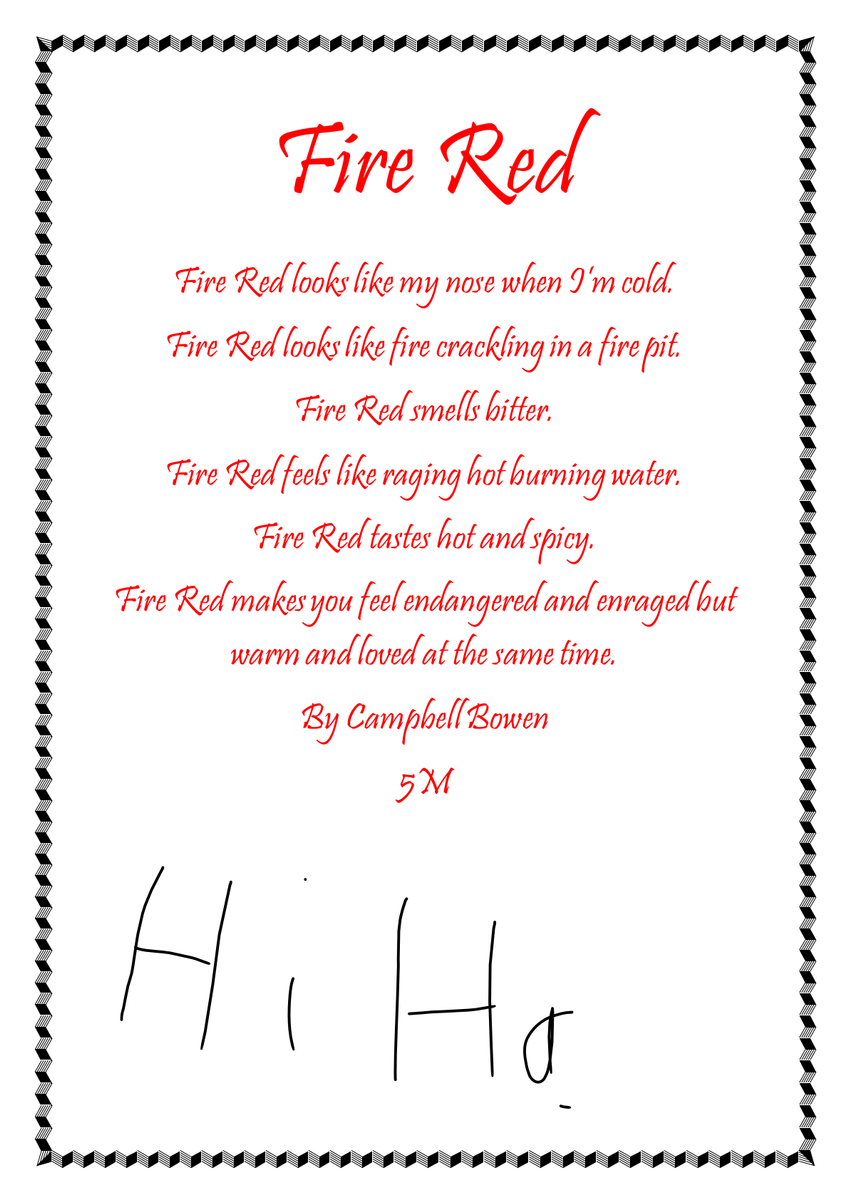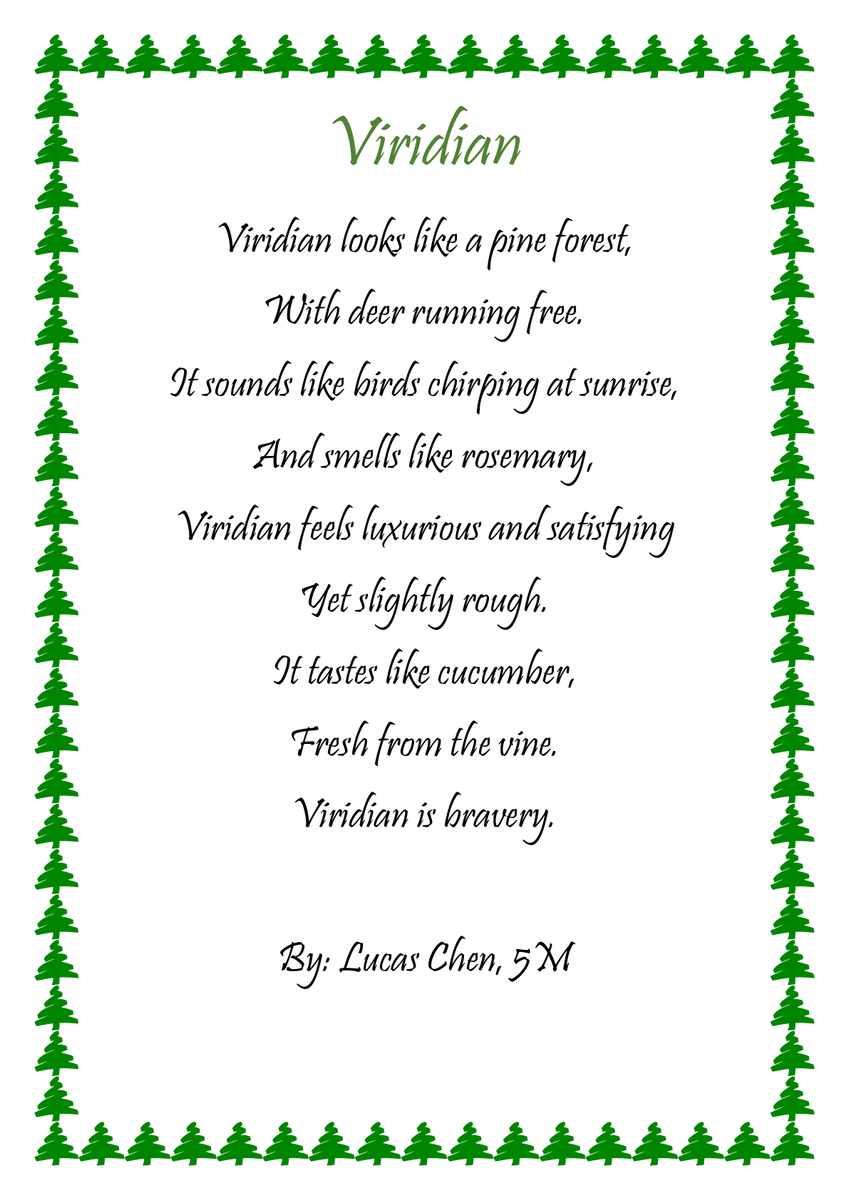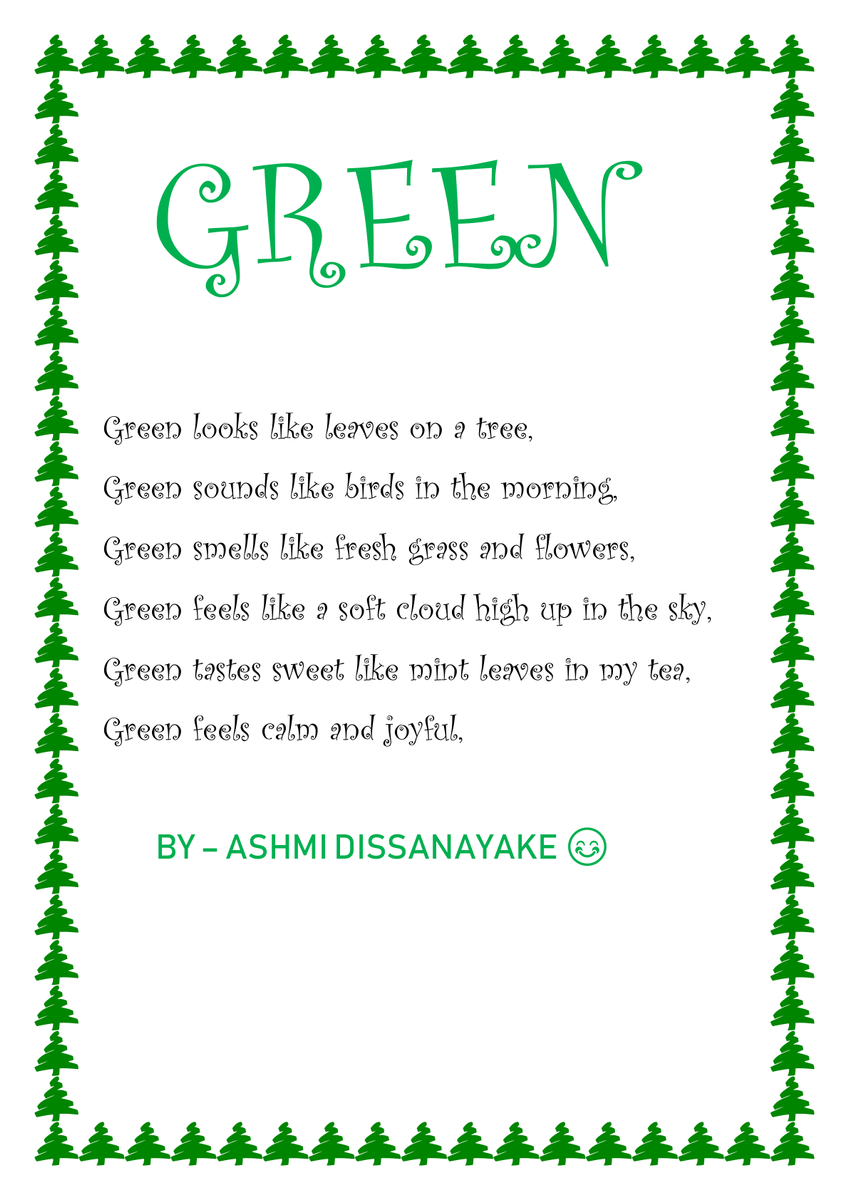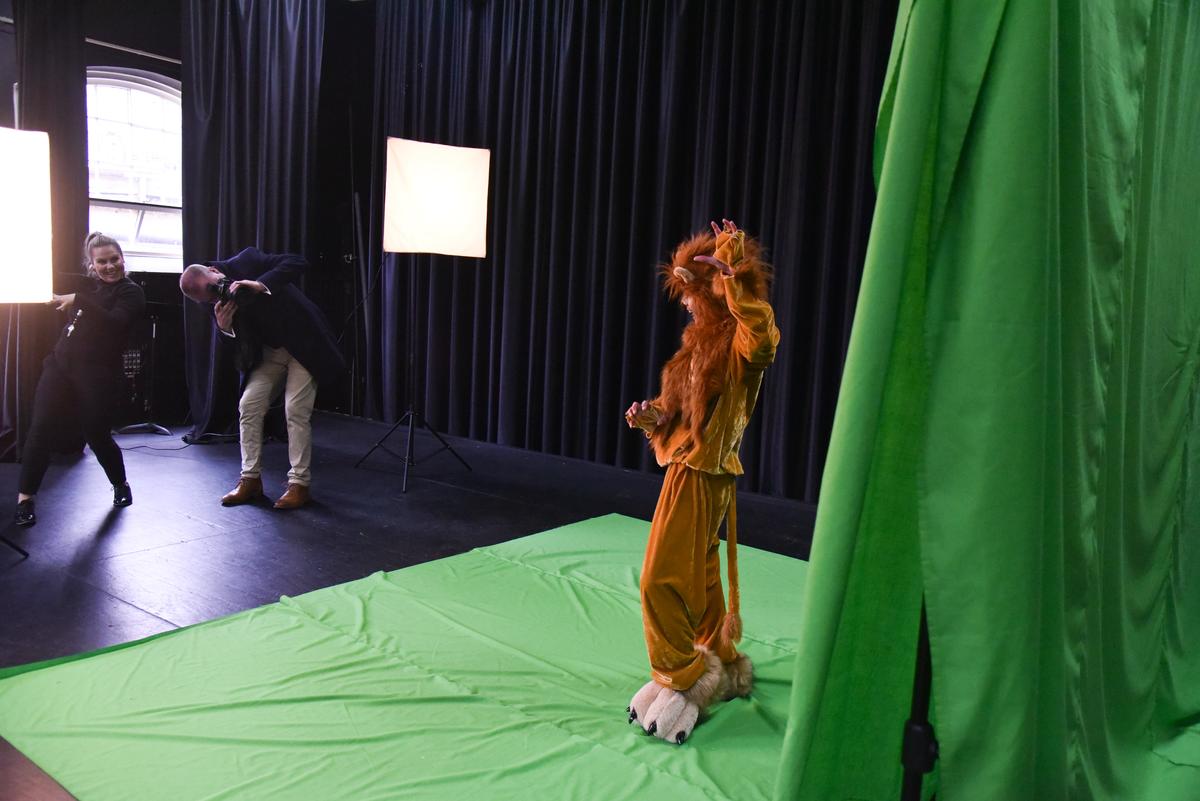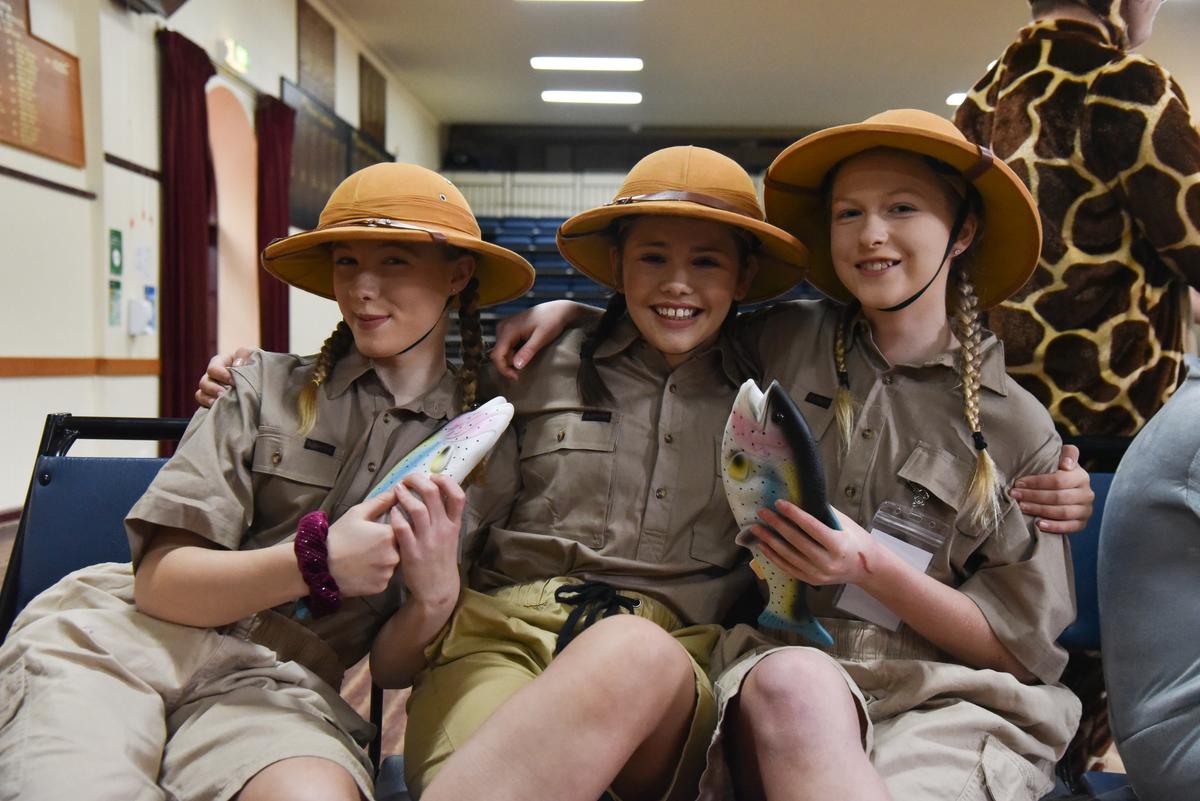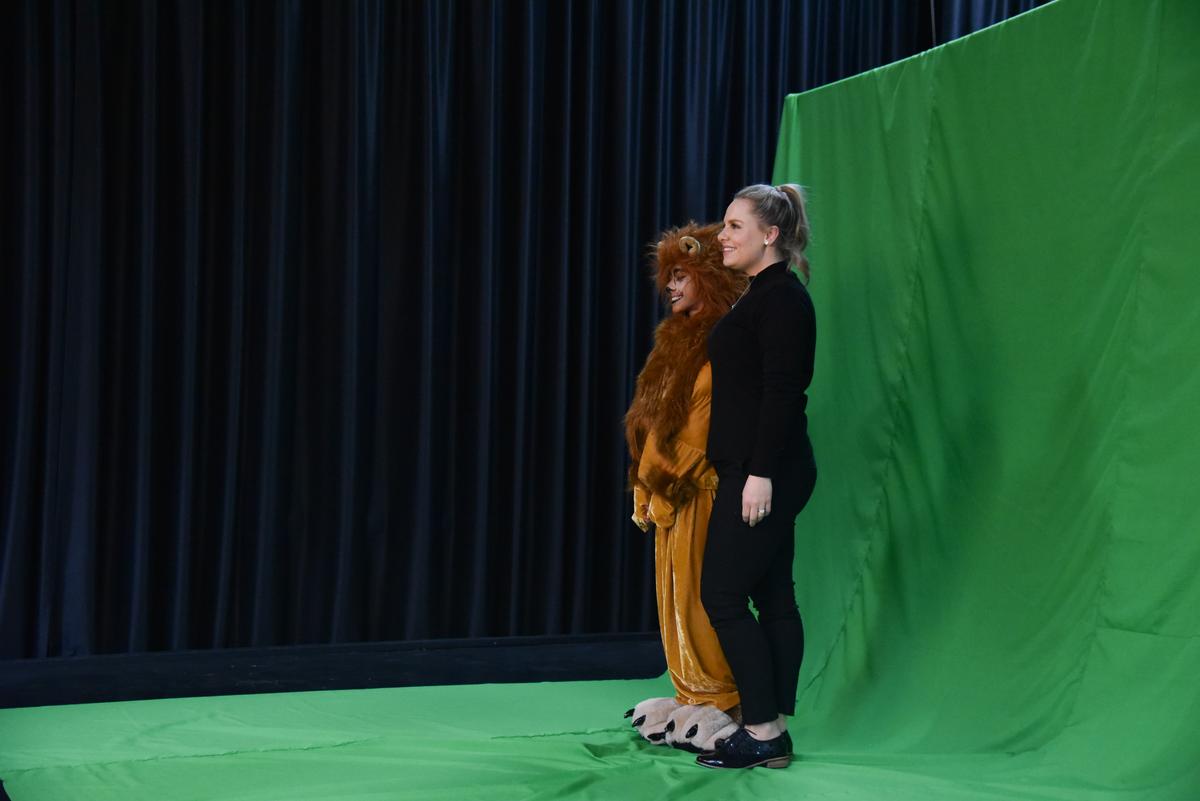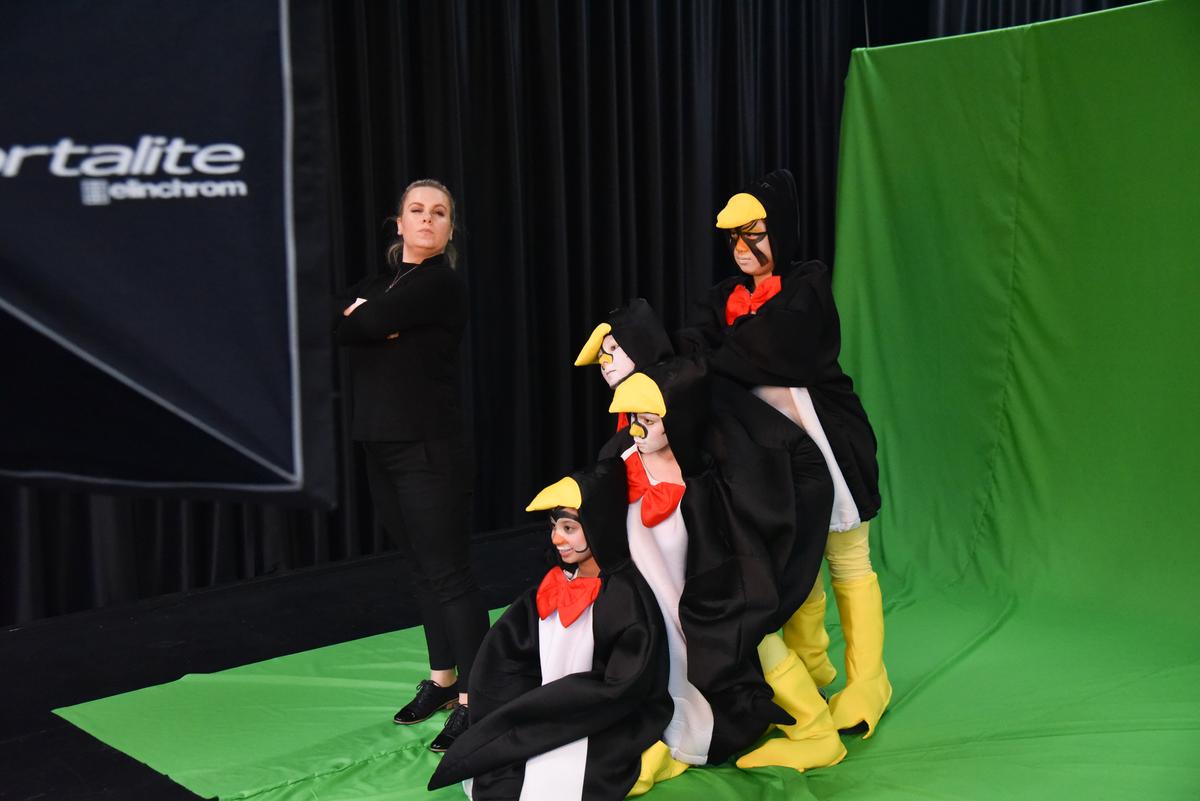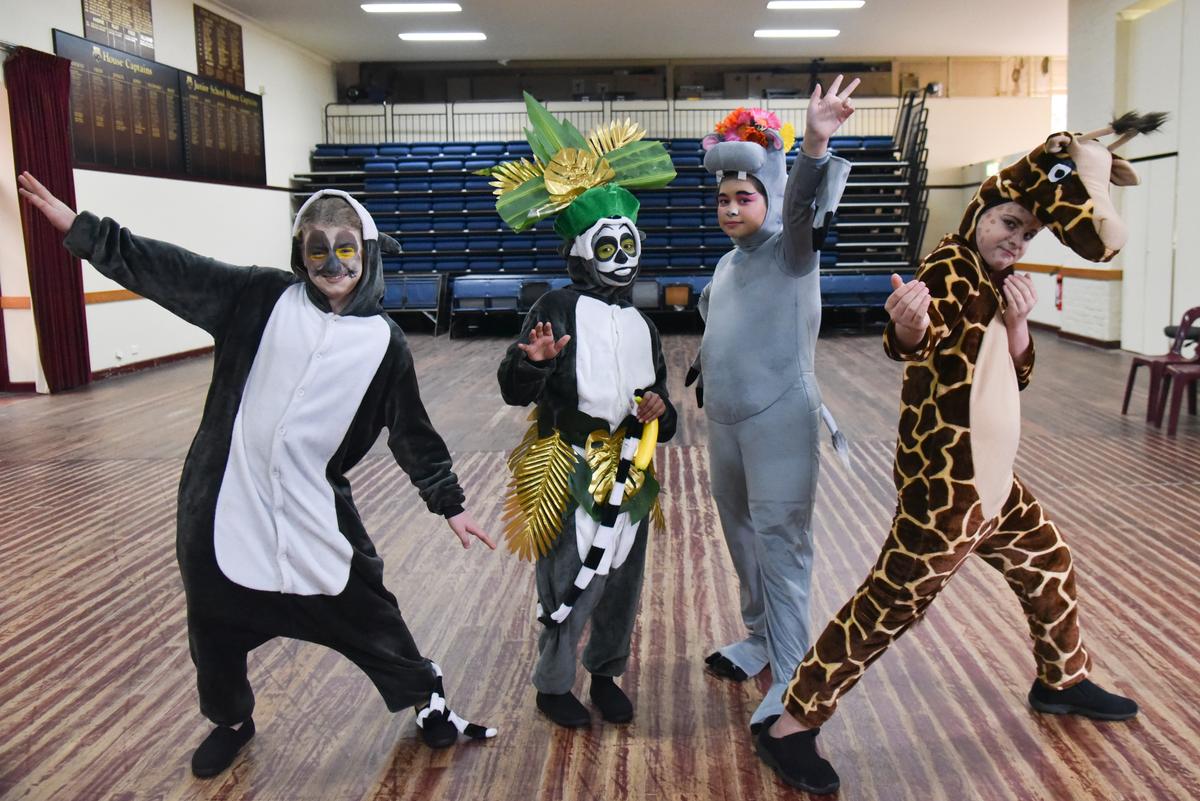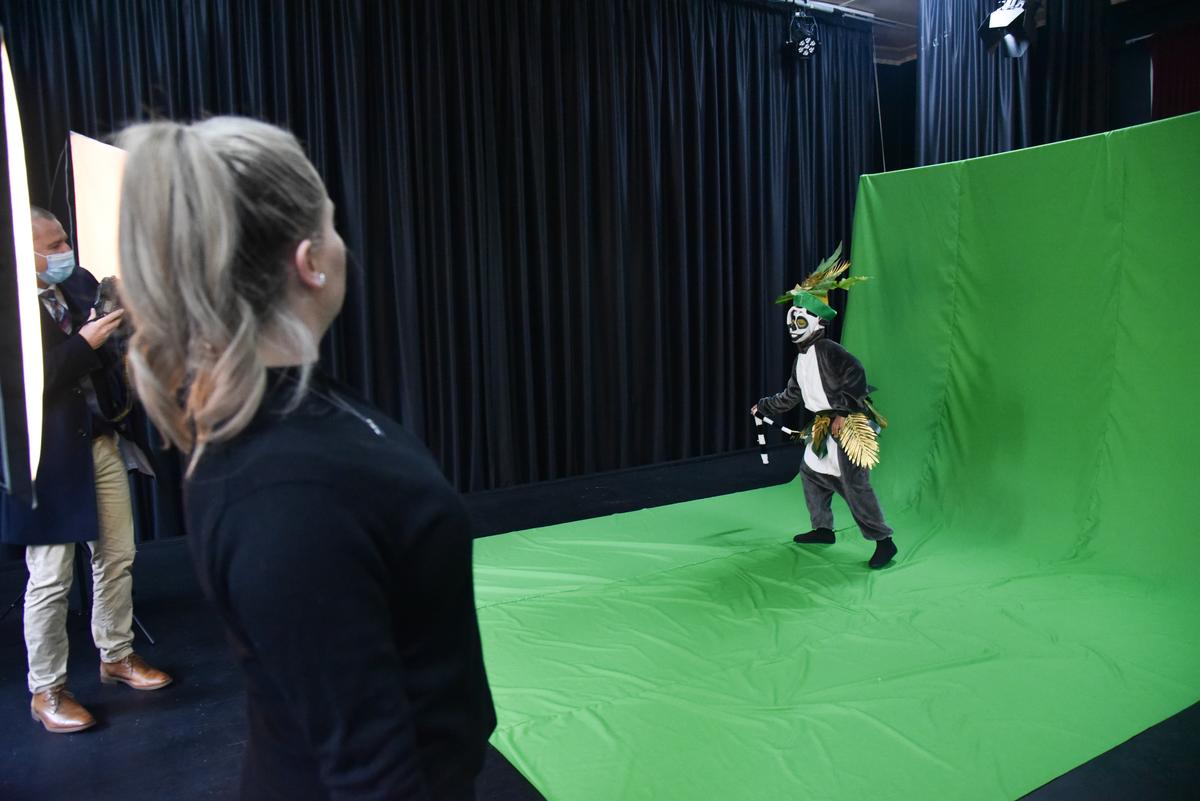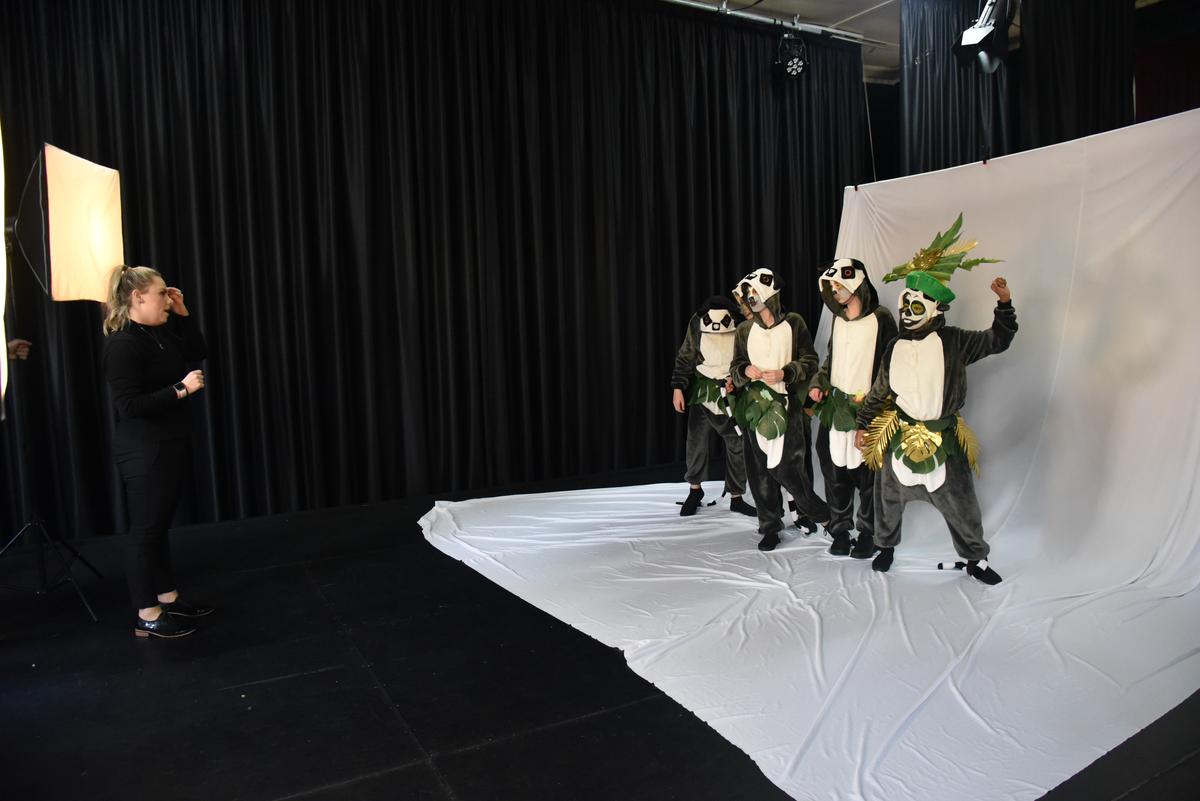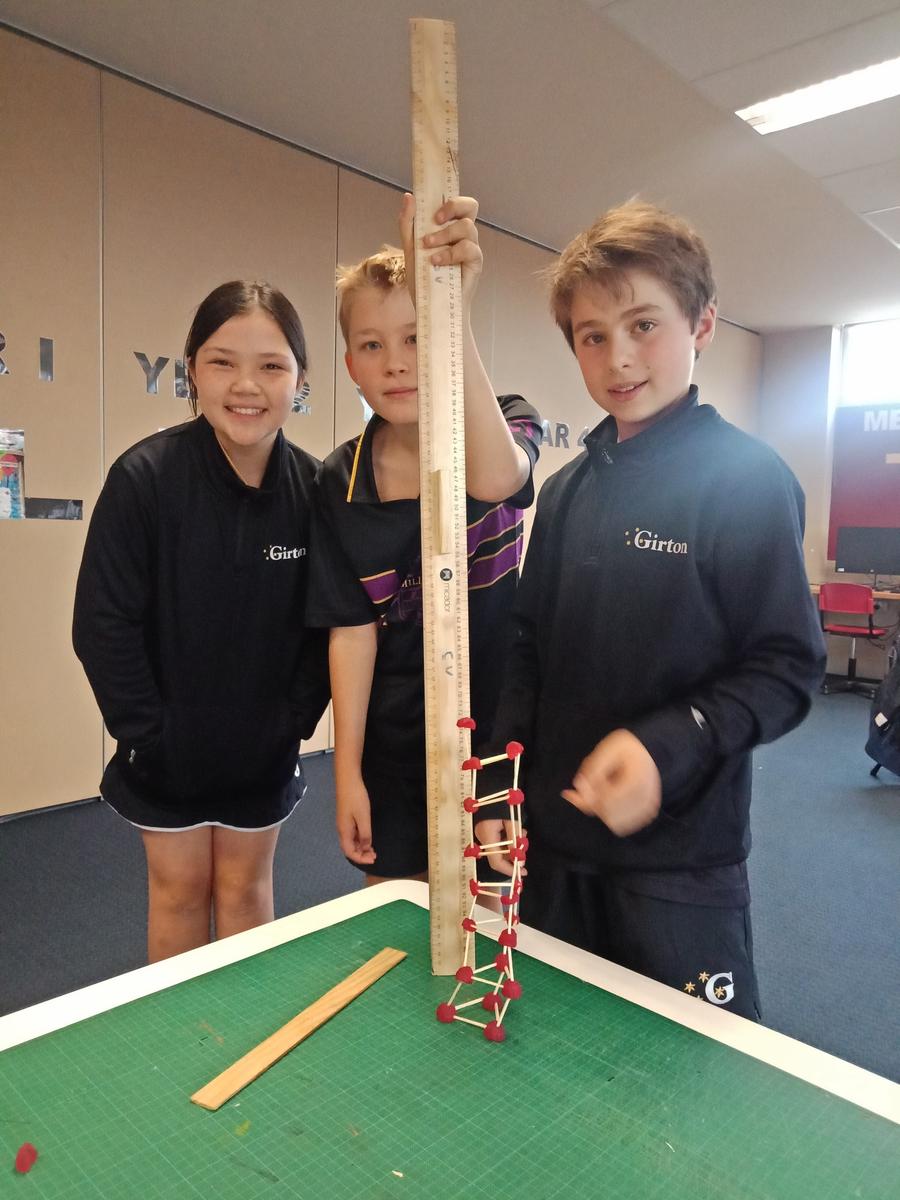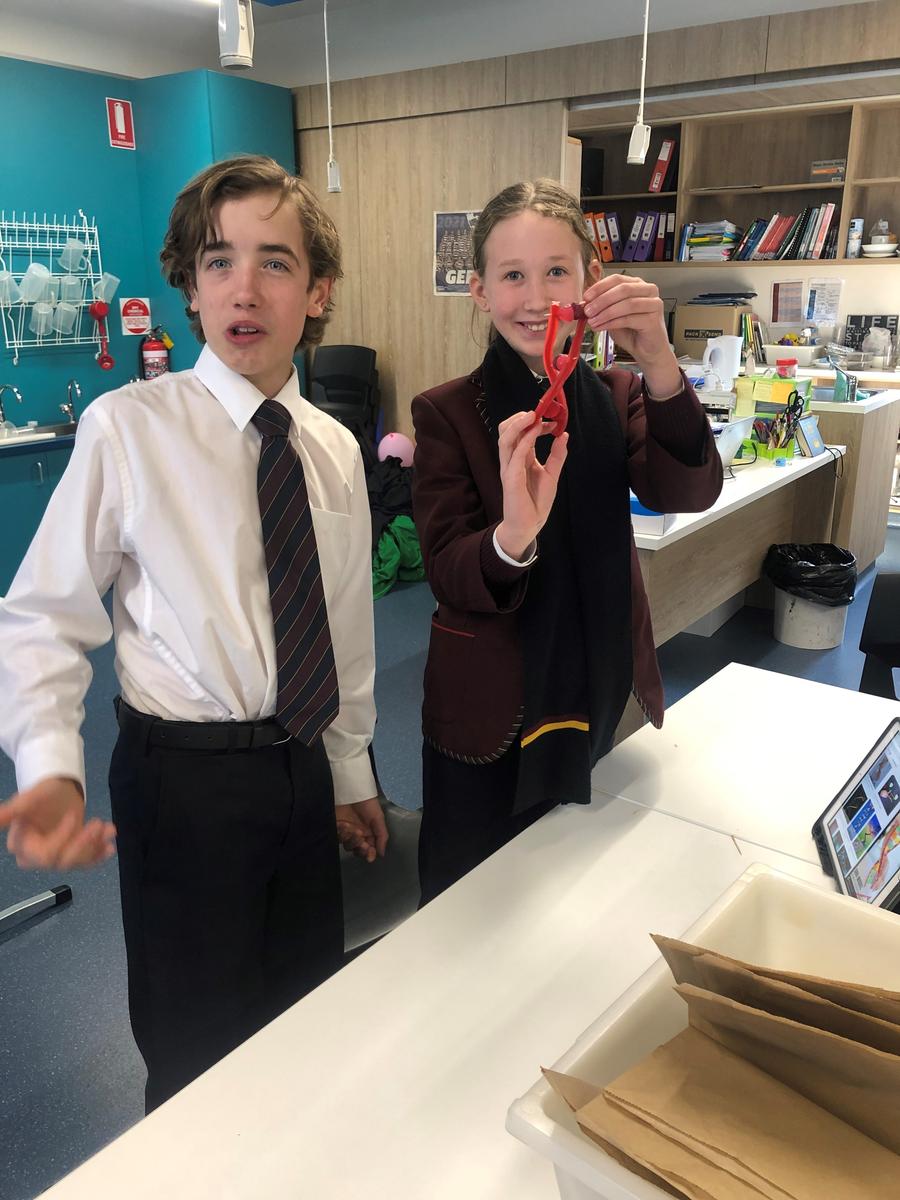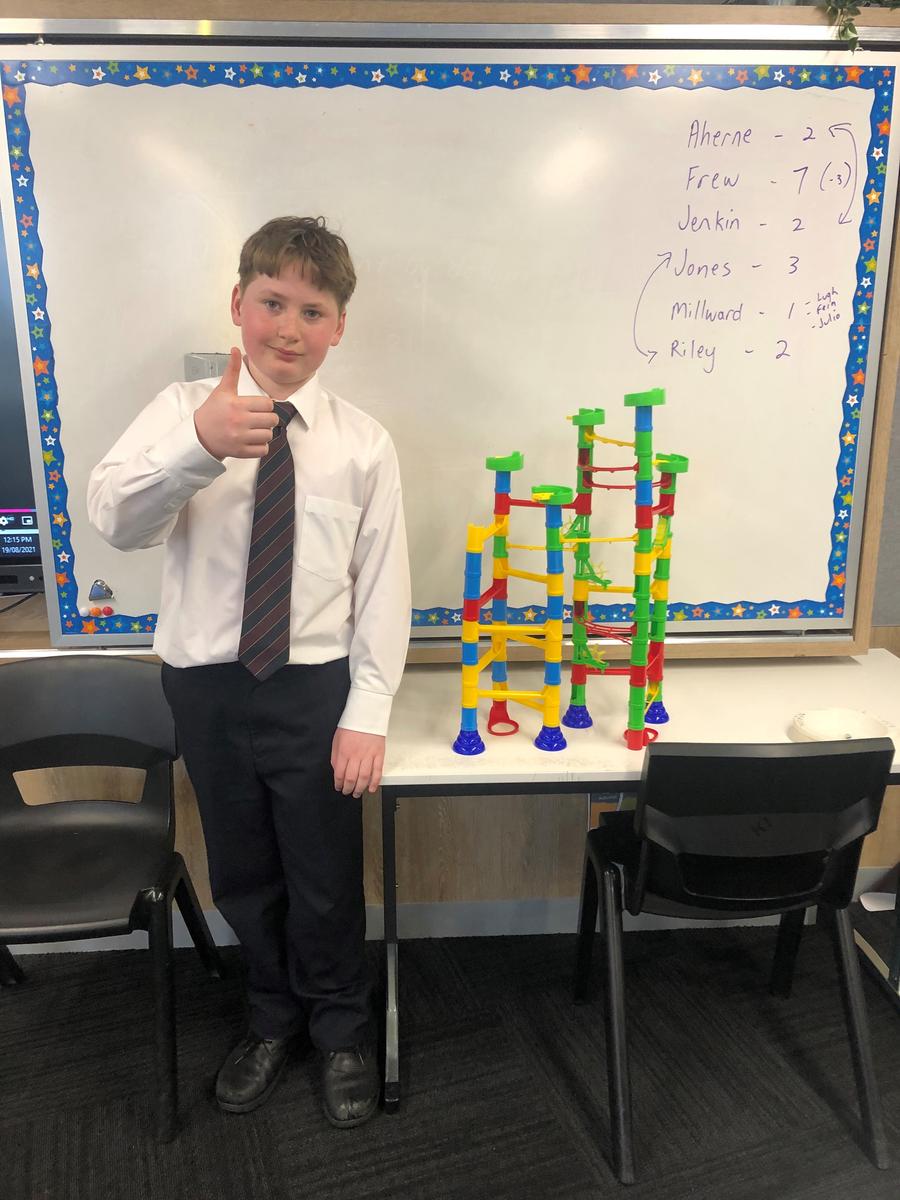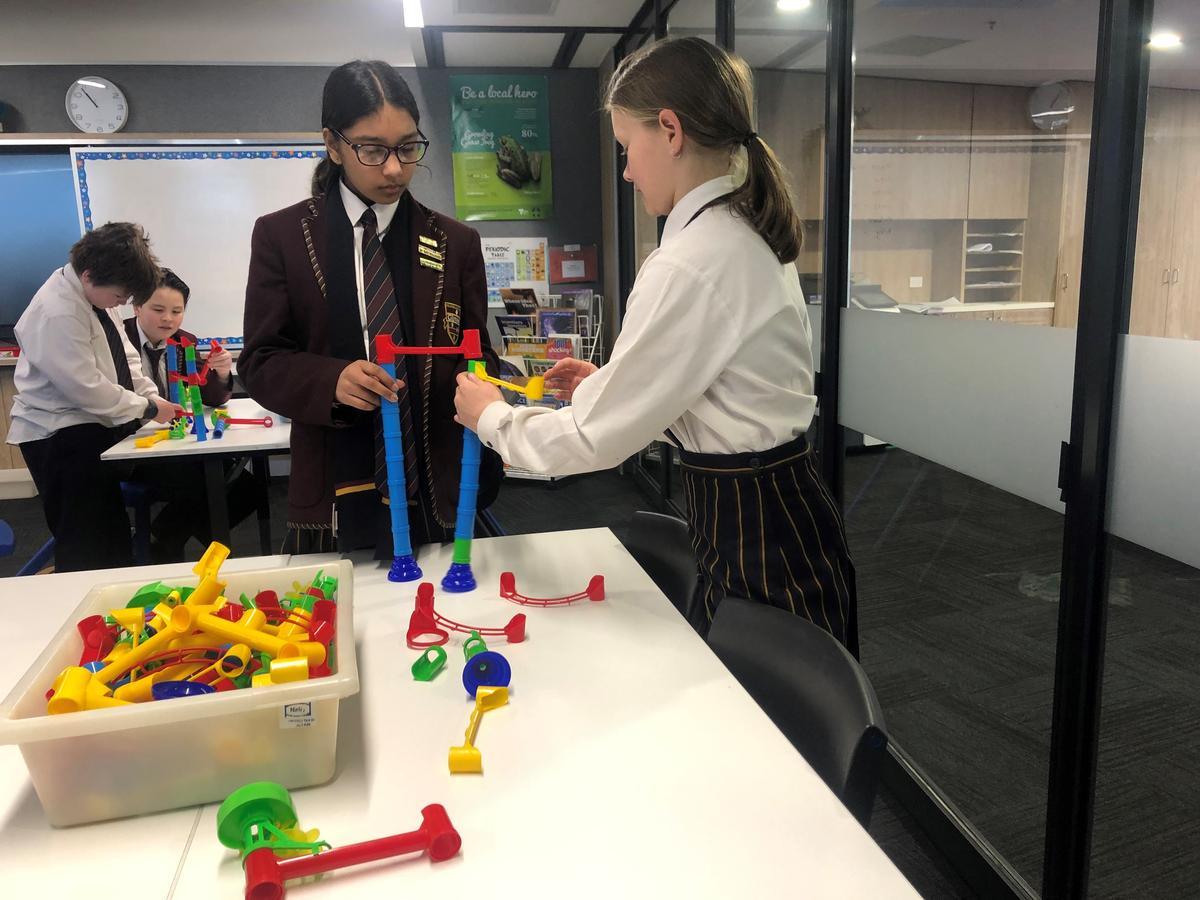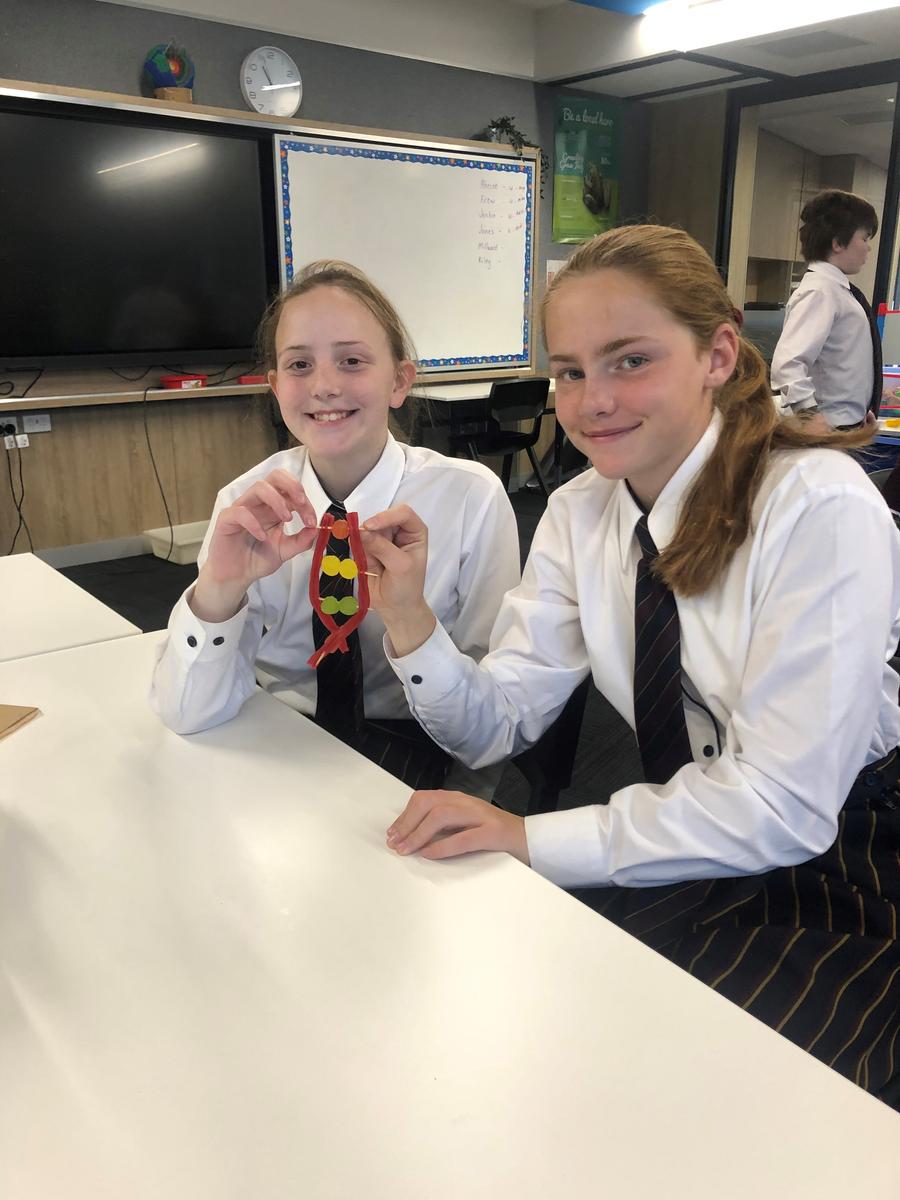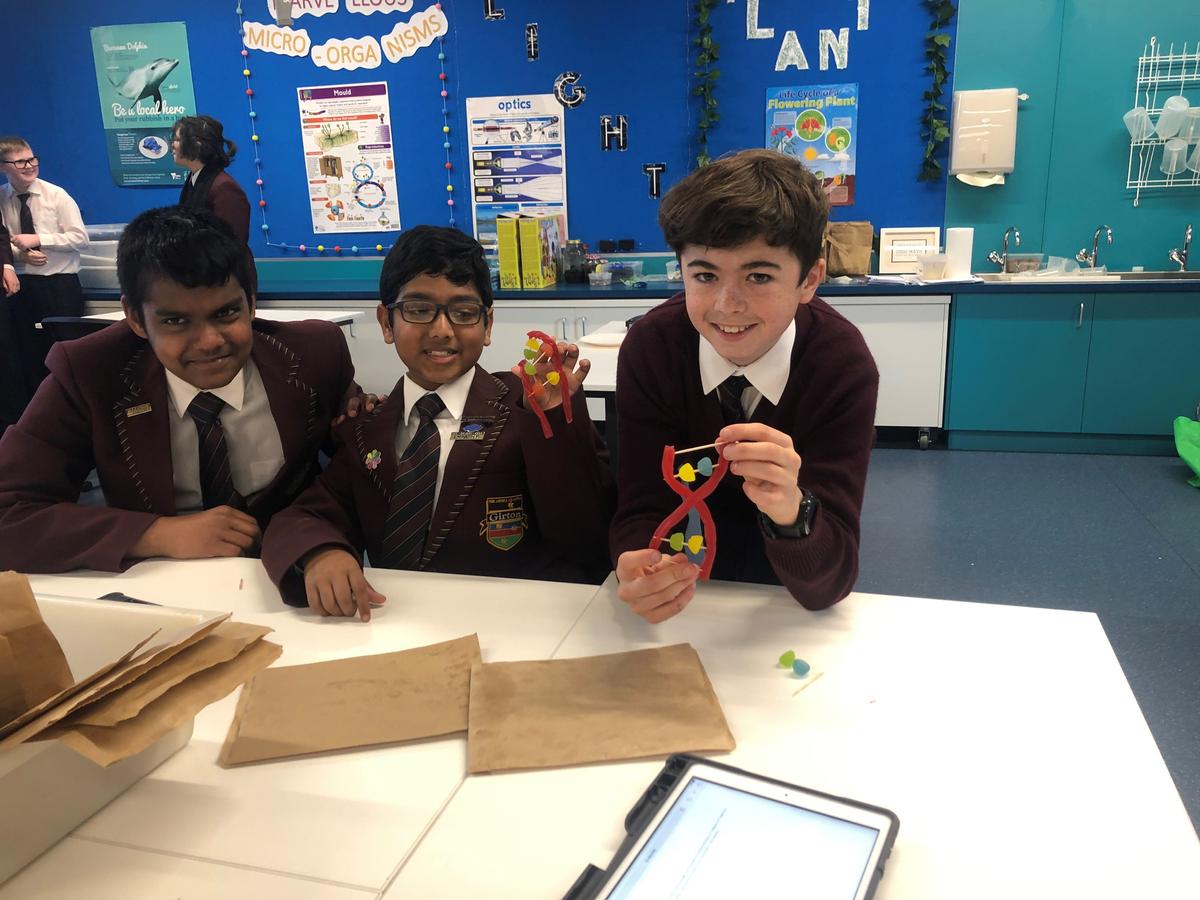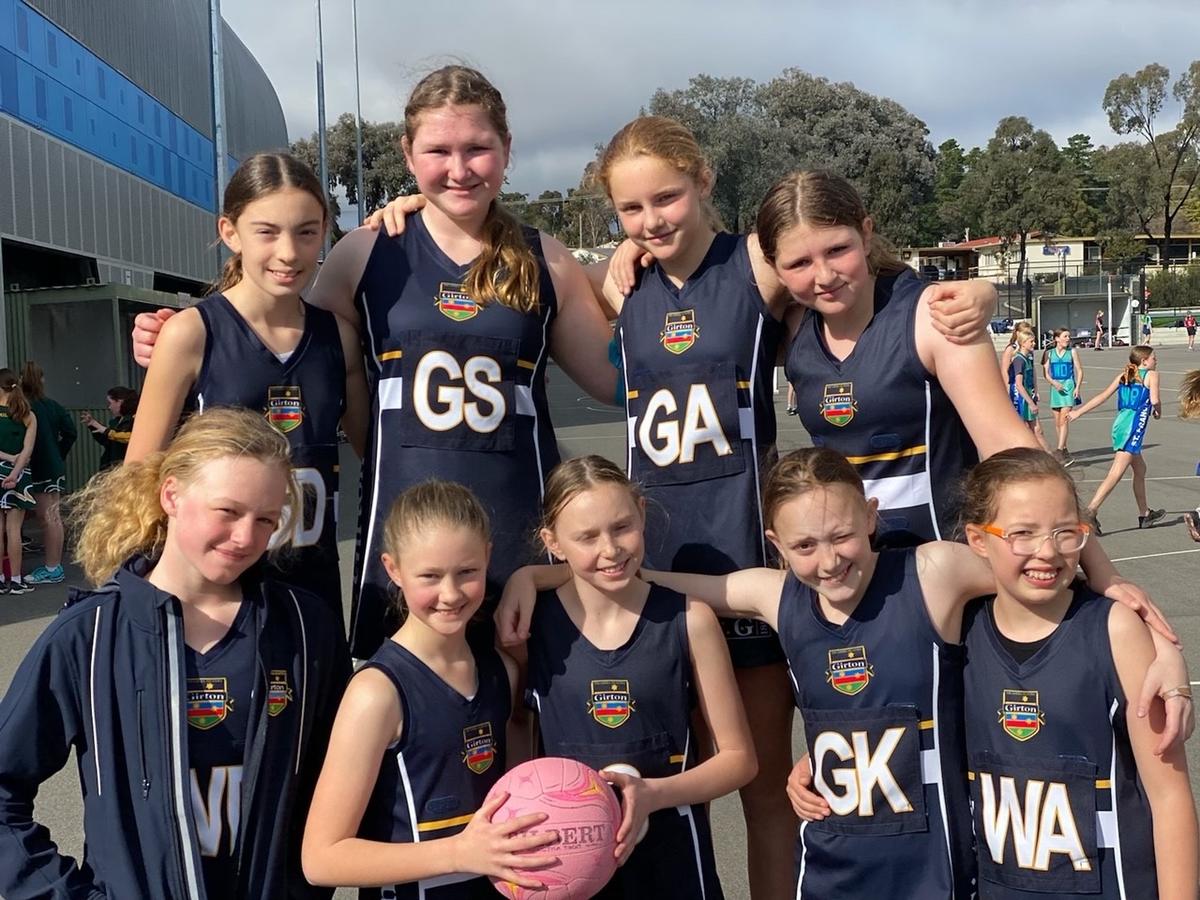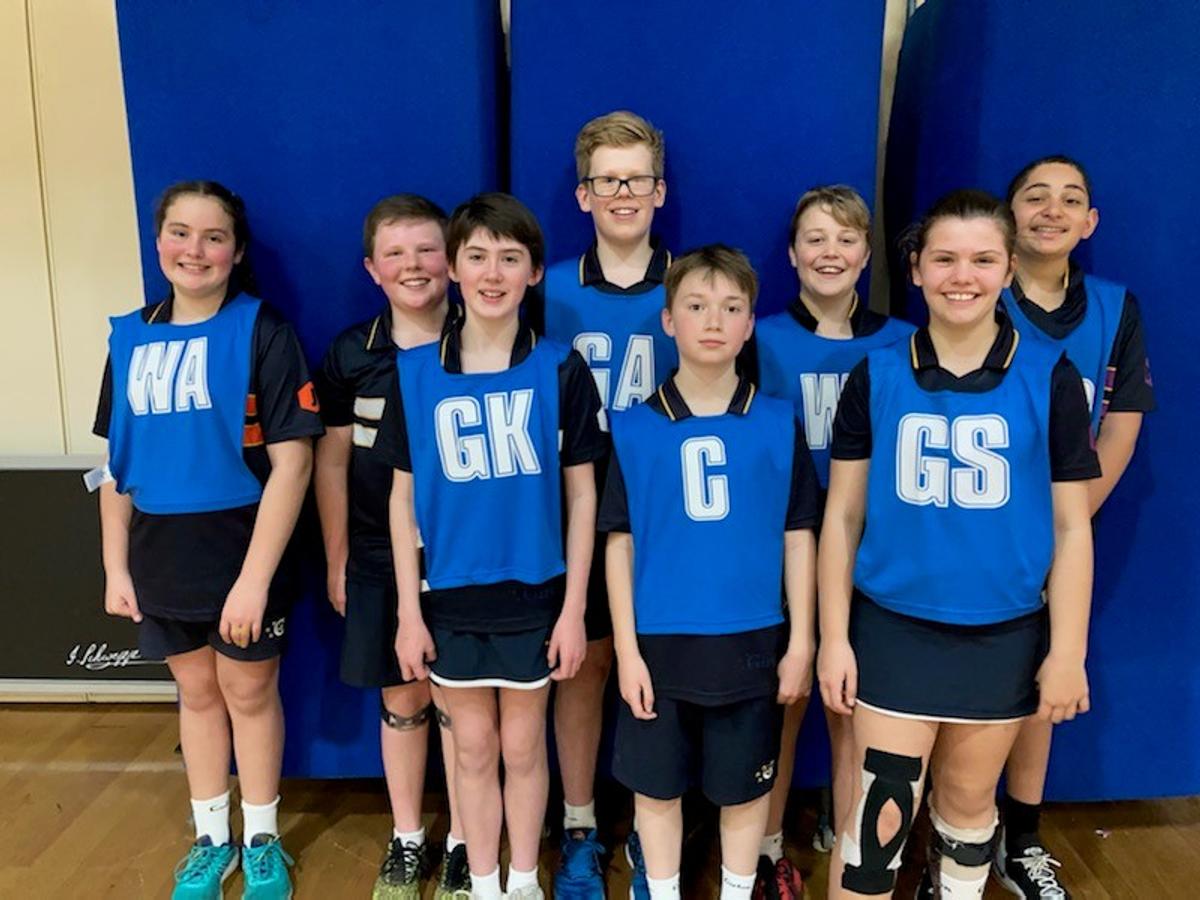Junior School News
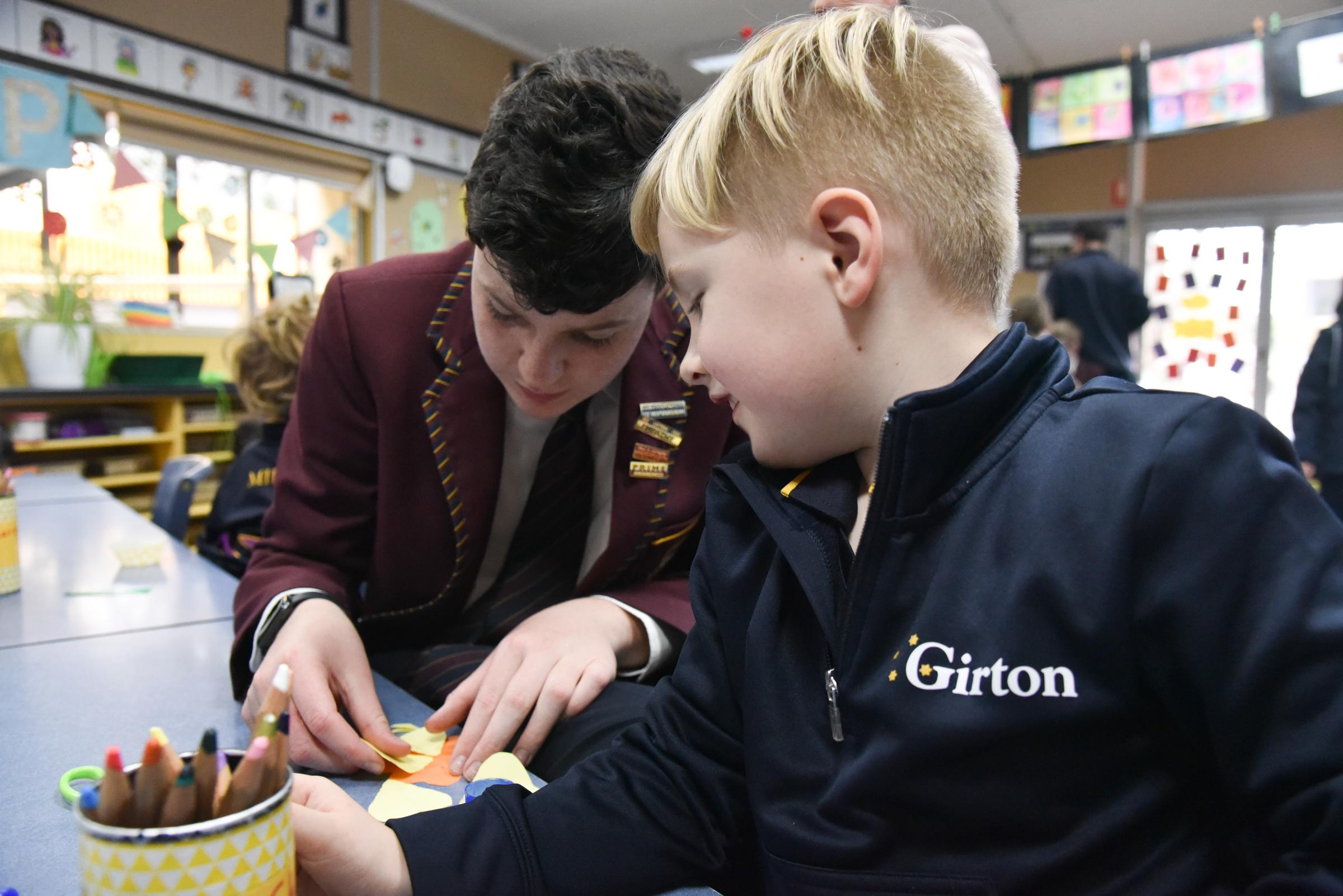
From the Head of Junior School
One of the issues that I am sure all parents are dealing with at the moment is how to answer our children’s questions about covid and lockdowns. I had a parent of a Year Two child let me know that their child was quite upset last Thursday before school. When they unpacked what was worrying them, it was that Thursday would be the last day that they would see their friends before lockdown.
Who told them there would be a lockdown? No-one. To their child Thursday was the day we went into lockdown because that is what had happened for the previous 2 weeks.
While it would be easy to dismiss this as a simple misunderstanding of events, it did give an insight into the level of worry that many of our children are carrying. To an extent we are all struggling with the relative uncertainty of what might happen from week to week or, sometimes, day to day. As parents and educators it is important that we listen to our children’s concerns rather than to dismiss them. Validating the fears that they have is an important step in helping them to understand how they are feeling and also to help them with strategies to cope with those feelings.
It is true that we could go into lockdown at short notice but it is also important for children to know that they will be supported and that the situation is temporary. Reflecting on the positive aspects of day to day life is also a good strategy for children when they are worried about a situation or event.
As much as we are all frustrated by the impact of covid and the subsequent lockdowns, we can reflect on, and look forward to, the times when we can be together. One of those good times was Wednesday of this week when our Junior School students were able to use the front play area again after it had been closed off for replacement. I could not help but laugh to see our children walk down the ramp on arrival at school and straight onto the new turf to try it out with one young lady laying down and doing her own version of a “turf angel”.
With regards to potential lockdowns Dr Massey has sent communication to all families regarding the new requirements for those parents who need to send their children into school during remote learning. I include below an excerpt from his letter for parent reference.
The rules surrounding on-site supervision of children at school during remote learning have been tightened as part of the Government’s current efforts to contain the spread of the highly infectious Delta strain of the coronavirus, which is impacting school-aged children in increasing numbers.
Parents and carers will only be able to request on-site supervision for their child/ren in the following two scenarios:
Category A: If all carers in a household have a permit from their employer as an authorised worker. If you currently hold a permit from your employer as an authorised worker, you may choose to submit your permit now to catteam@girton.vic.edu.au so that children are registered to attend on-site at Girton if and when necessary.
Category B: If children are experiencing vulnerability according to the following Government definition including:
- In out-of-home care
- Deemed vulnerable by a government agency, funded family or family violence service, and assessed as requiring education and care outside the family home
- Identified by a school or early childhood service as vulnerable (including via referral from a government agency, or funded family or family violence service, homeless or youth justice service or mental health or other health services)
- Where a parent/carer indicates that a student with a disability is vulnerable because they cannot learn from home and/or informs the school the student is vulnerable due to family stress. This may apply to students enrolled in specialist schools and students with a disability enrolled in mainstream schools.
The Department of Education and Training has recommended that schools use the same form to keep consistent records of students who are eligible for on-site school supervision. A copy of the form has been placed on Astra. It can be completed electronically and submitted via the dropbox on Astra at this page: https://astra.girton.vic.edu.au/homepage/22762
Or you may return the form via email to catteam@girton.vic.edu.au. You may return the form now if you are sure you will require on-site supervision, or you may return the form in the instance that regional schools return to remote learning.
Mr Donald Thompson
Head of Junior School
Buddies Help With Nature Wall
Prep students and their Year Six buddies were mutually excited to set about creating items for the nature wall in the prep classrooms. Students imagined, cut, glued and created with gusto insects and flowers for the display.
Year One: Musical Instruments
Based on the book: The Very Noisy Bear by Nick Bland
In Year One we have been reading many Nick Bland stories based on bears. We have read, The Very Itchy Bear, The Very Brave Bear, The Very Sleepy Bear, The Very Cranky Bear, The Very Hungry Bear and The Very Noisy Bear. From The Very Noisy Bear story, the Year One’s designed and created their own musical instruments. Last Friday, we played our instruments in the Jingle, Jangle Jungle( Greenland) with all the Year Ones.
Year Five: Poetry
Year Five (5M) has been studying different types of poems. They crafted some colour poems by using their five senses to record their personal responses.
Madagascar – A Musical Adventure Jr
Junior School Production
It was lights, camera, action in the Junior School Drama room on Thursday 5th of August. A team of very talented Senior School makeup helpers transformed the main characters from Madagascar - A Musical Adventure JR into wild animals. Based on the popular DreamWorks animated motion picture, Madagascar – A Musical Adventure JR. follows crack-a-lackin’ friends as they escape from their home at New York’s Central Park Zoo. The friends soon find themselves on an unexpected journey to the wacky world of King Julien’s Madagascar.
The Year Six students were extremely eager to participate in the upcoming Junior School Production promotional photoshoot. They have been working diligently to rehearse their lines and learn exciting choreography despite the challenges posed by lockdowns. The photoshoot provided the students with a sense of excitement and anticipation for the performances in October. Harshil Balraj 6 Riley, who plays King Julien, said, “The photoshoot was a positive experience. I really liked it. I feel lucky that the teachers provide us with different opportunities to grow in confidence.” Shanali Wickramasinghe 6 Riley, who plays Marty the zebra, also reflected on the day, saying that “I really enjoyed the Madagascar Jr photoshoot. The makeup and costumes were fantastic! I had a great time, and I am excited about putting on a great show.”
The students had a wonderful time and we cannot wait to see the photos. I would like to acknowledge the talented teachers who assisted with the photo shoot: Mrs Nicola Matthews, Mrs Jan Dillon, Mrs Jacinta Jackson, Mrs Lucy Butler-Rees, Mrs Jenny Geyer, Mrs Kim Henery, Ms Kristi Mitchell and Mr Mark Beever.
Mrs Georgiana Rice
Science Week
Junior School students participated in this year’s National Science Week. The theme was ‘Food: Different by Design’. Students applied their engineering skills to build a ‘lolly tower’ using raspberry lollies and matchsticks. The Year 4 to 6 students enjoyed a range of different activities during their class time including creating a DNA lolly strand and a challenge to identify and memorise a range of unique fruit and vegetables.
Mrs Jenny Geyer
Divisional Netball
The Year Six girls netball team participated in the Sandhurst Netball Championships on Friday, August 13th.
The team played a total of six games throughout the day in the Girls Top – Section 2. They won five of their games, just missing out on playing in the grand final at the end of the day by being three goals short for their only loss of the day. The girls all played wonderful netball and excelled in displaying both their skills and their enjoyment of playing together as a team for the first time. Each player demonstrated a positive and courageous attitude to remain focussed and eager to play throughout the long day. They supported each other beautifully and represented themselves and Girton faultlessly.
I was very proud of all nine of the players and their consistent effort throughout the day. Our special thanks to Mrs Jess Barber for giving up her time to coach the team throughout the day.
Mrs Heather Keig
The Year Six mixed netball team participated in the Sandhurst Netball Championships on Friday August 13th.
The team played a total of five matches throughout the day. They won three of them, finishing third in the division one section. The students all had a lot of fun and enjoyed playing netball together. Each of them demonstrated a positive attitude and were willing to try new positions throughout the day. They supported each other and represented themselves and Girton very well. It was inspiring to see the boys who have never played netball in a competition before, learning the skills and positions on the court throughout the day.
I was very proud of all eight of the players and their effort on the day.
Mrs Linda Gibson
The Language of Respectful Relationships – Michael Grose, Parenting Ideas
“Sticks and stones may break my bones, but words will never hurt me.”
This reply to playground name-calling has been taught to children by generations of parents. While the sentiments are true, it demonstrates how destructive language can be when it’s used to hurt or humiliate.
Name-calling dehumanises the child or young person on the receiving end, making it easier for a perpetrator to bully, put down or abuse. The language of bullying and sexual abuse is deliberately vague and generalised making it easier to hurl insults about gender or ethnicity. It’s much harder to insult someone when real names are used as it becomes personal.
Bullying uses language that dehumanises. Respectful relationships has its own language, and it’s through this language that respect is shown, and personal safety and integrity are assured.
Parents can help children and young people to develop the language of respectful relationships in the following ways:
Use first or preferred names
The sound of a person’s name respectfully spoken is music to the listener’s ears. Teach kids to refer to other people by their first or preferred name. If a relative prefers to be called aunt or uncle rather than by their first name, then out of respect, encourage children and young people to adjust their language accordingly, even though you may not subscribe to such formalities. Politeness is respect in action.
Differentiate between behaviour and the person
It’s incorrect to define a child’s character through their poor behaviour. A child who tells lies is frequently called a liar, someone who steals is often labelled a thief, or someone who inadvertently shares secrets is deemed untrustworthy. In sporting parlance, focusing on the behaviour rather than on the person teaches kids about to play the ball, not the person. It may sound like splitting hairs but the focus on character traits rather than on a person’s behaviour is hurtful, often degrading, and leads to resentment rather than change.
Call out disrespectful behaviour
The standard of behaviour you ignore is the standard of behaviour you accept. Disrespectful behaviour needs to be called out by adults so kids learn that bullying, racism and other forms of disrespectful language are not acceptable. When discussing the behaviour and character of friends, fictional characters in books and personalities on film differentiate between the behaviour and the person, calling out the use of negative labels when you hear them. It’s easy to ignore disrespectful language when you hear it, but this one area where a consistent approach by adults is critical.
Frame behaviour as a choice
Framing behaviour as a choice is an essential respectful relationships strategy that needs to be reinforced for children and young people. “That’s a smart/good/helpful choice!” is the type of response kids should repeatedly hear, reinforcing that their behaviour is a result of choice rather than driven by others, circumstances, or emotion. Personal choice negates the idea that somehow other people or circumstances determine behaviour, or become convenient scapegoats for all types of abuse and disrespectful behaviour. “She/he made me do it” just doesn’t wash in a civilised society.
Develop a wide vocabulary
Build a wide vocabulary of terms essential to respectful relationships. Terms such as safety, choice, respect, acceptance, tolerance, love, likeable and host of others should be familiar to kids as well as phrases that emphasise fair and respectful treatment of others in all types of environments.
In closing
Respect is shown not only through the treatment of others but through the language kids use every day. By focusing on the language of respect you are laying the basis for kids to enjoy respectful relationships both now and in the future.

